MAR. 2 2024
אשת
חקור




A Deeper Look at Challah Rebbetzin Zemira Ozarowski Pg 44


The Importance of Learning Hebrew in the Diaspora Rabbi & Rebbetzin Billet Pg 54
ADVERTISING & SPONSORSHIPS 02-560-9125 TorahTidbits.com OU ISRAEL 02-560-9100
ה"ב ISSUE 1555
YERUSHALAYIM SHABBAT PARSHAT KI TISA ZMANIM CANDLES 5:01 PM • HAVDALA 6:15 PM • RABBEINU TAM 6:55 PM
▪ ד"פשת ׳א רדא ב״כ
יכ תשרפ PARSHAT KI TISA
השעמ חקר תרטק התא תישעו ה״ל:׳ל תומש שדק רוהט חלממ
04
08
14
20
22
24
28
Dear Torah Tidbits Family
Rabbi Avi Berman
Aliya-by-Aliya Sedra Summary
Rabbi Reuven Tradburks
Between Truth and Peace
Rabbi Lord Jonathan Sacks zt"l
Probing the Prophets
Rabbi Nachman Winkler
A Stubborn People
Rabbi Shalom Rosner
Lofty Luchot
Rebbetzin Shira Smiles
30 Simchat Shmuel
44
48
A SHORT VORT
50
Ribbit on More that is Worth the Same
Rabbi Daniel Mann
54 The Importance of Learning Hebrew in the Diaspora
Rabbi & Rebbetzin Billet
58
60
The Y-Files Weekly Comic Netanel Epstein
Torah 4 Teens by Teens
Moriah Goldsmith // Jonah Klein
See TorahTidbits.com > Individual Articles for this weeks Divrei Torah by Rabbi Moshe Hauer and Rabbi Dr. Tzvi Hersh Weinreb
THIS WEEK'S COVER PHOTO
Linda Lieff Altabef made aliyah with her family to Rosh Pina. She is an acclaimed artist. The stained glass window that appears on the cover of Torah Tidbits depicts the Ketoret spices that were offered in the Beit Hamikdash. This art piece adorns the entrance of the historic Mt. Kisco Congregation in Upper Westchester, N.Y. Her latest art piece will be exhibited at the Museum of Italian Art, opening March 10th.
 BY RABBI CHANOCH YERES
R av, Beit Knesset Beit Yisrael, Yemin Moshe
BY RABBI CHANOCH YERES
R av, Beit Knesset Beit Yisrael, Yemin Moshe
)ה:בל( רחמ 'הל גח רמאיו ןרהא ארקיו וינפל חבזמ ןביו ןרהא אריו
"And when Aaron saw (this), he built an altar before it and Aaron proclaimed, and he said: a feast to G-d (will be) tomorrow." (32:5)
Rashi (Rabbi Shlomo Yitzchaki 1040-1105, France) explains that this statement of Aaron declaring tomorrow as a day of feast, was really a strategy trying to stall until Moshe would return.
Yet, many questions are raised by Rashi over this strategy of Aaron.
Why did Aaron offer to fashion and build the golden calf all by himself without getting help? Why did Aaron agree to participate in this scheme in the first place?
Finally, why the need to also build an altar, wasn't the Golden calf enough to satisfy the people's request?
Aaron understood how grave this sin of idolatry would be and preferred that he receive all the blame and cover for the people, therefore, he opted to work alone.
Rashi quotes the Midrash Rabbah (Vayikra) explaining that Aaron saw that Chur (his sister's son) was killed trying to oppose the sinful move of the people. Rashi interprets the words of the text differently. "He built an altar" is to be understood differently (mizbeach to mizavuach), namely, he understood from him who was slaughtered before him. Therefore, Aaron did not refuse to cooperate, fearing for his life.
In addition, Aaron felt that if he built an altar himself, he could tarry in his work, hoping that the additional time would be enough for Moshe to descend.
- Shabbat Shalom
2 TORAH TIDBITS 1555 / KI TISA
Table of Contents
Join Me! Rabbi Judah Mischel
Schedule OU Israel
Learning to be Like Ketoret Rabbi Moshe Taragin
Rabbi Sam Shor 32
38
A Deeper Look
Challah
Zemira Ozarowski
at
Rebbetzin
The Spirit
Shabbat
Goldscheider
of
Rabbi Aaron
CANDLE
All Times According to MyZmanim (20 mins before Sunset in most Cities; 40 mins in Yerushalyim and Petach Tikva; 30 mins in Tzfat and Haifa) Daf
JERUSALEM
Ranges 11 days Wed - Shabbat
Oct x - x / x - x Cheshvan
Earliest Tallit and Tefillin x:xx - x:xx
Sunrise x:xx - x:xx
Sof Zman Kriat Shema x:xx - x:xx
Magen Avraham x:xx - x:xx
Sof Zman Tefila x:xx-x:xx (According to the Gra and Baal HaTanya)
Chatzot (Halachic Noon) x:xx - x:xx
Neuberger, Chairman of the Board, Orthodox Union
Josh Penn,
JOSHUA M. JOSEPH, ED.D.
Kashrus Commission RABBI MOSHE HAUER, EXECUTIVE VICE PRESIDENT
EXECUTIVE VICE PRESIDENT & CHIEF OPERATING OFFICER Rabbi Dr. Tzvi Hersh Weinreb, Exec. V.P. Emeritus
OU KOSHER: Rabbi Menachem Genack, CEO/Rabbinic Administrator OU Kosher | Rabbi Moshe Elefant, COO/Executive Rabbinic Coordinator ISRAEL: Rabbi Yissachar Dov Krakowski, Rabbinic Administrator | Rabbi Ezra Friedman, The Gustave and Carol Jacobs Center for Kashrut Education/ Deputy Rabbinic Administrator
Headquarters: 40 Rector St. 4th floor, New York, NY 10006 212-563-4000 website: www.ou.org
Editor Emeritus: Phil Chernofsky
Editor: Rabbi Aaron Goldscheider | aarong@ouisrael.org
Advertising: Ita Rochel | 02-5609125 or ttads@ouisrael.org
Website: www.torahtidbits.com
Not getting enough TTs? Too many? None at all?
Contact our DISTRIBUTION 050-577-2111 • ttdist@ouisrael.org
Mincha Gedola (Earliest Mincha) x:xx - x:xx
- 12:19
Plag Mincha x:xx - x:xx
Plag Mincha 4:23 - 4:29
Sunset (Including Elevation) x:xx - x:xx
Sunset (Including Elevation) 5:39 - 5:47
Seymour J. Abrams • Orthodox Union Jerusalem World Center • Avrom Silver Jerusalem College for Adults • Wolinetz Family Shul • Makom BaLev • Birthright • Yachad • NCSY in Israel • JLIC in Israel • Camp Dror • Pearl & Harold M. Jacobs ZULA Outreach Center • The Jack Gindi Oraita Program • OU Israel Kashrut
STUART HERSHKOWITZ, PRESIDENT OU ISRAEL
Zvi Sand / Yitzchak Fund: Former Presidents, OU Israel | Rabbi Emanuel Quint z”l, Senior Vice President | Prof. Meni Koslowsky, Vice President
VAAD MEMBERS:
Michael Elman | Yonatan Frankel | Yitzchak Fund | Daniella Hellerstein | Stuart Hershkowitz | Jeremy Lustman | Meir Raskas | Atara Reichel | Zvi Sand | Norman Schmutter | Mark Schneider | Esther Williams
RABBI AVI BERMAN, EXECUTIVE DIRECTOR, OU ISRAEL
David Katz, CFO, OU Israel | Chaim Pelzner, Director of Programs, OU Israel | Rabbi Sam Shor, Director of Programs, OU Israel Center | Rabbi Sholom Gold zt"l, Dean, Avrom Silver Jerusalem College for Adults
22 Keren HaYesod <> POB 1441 <> Jerusalem 9101032
phone: (02) 560 9100 | fax: (02) 561-7432
email: office@ouisrael.org
website: www.ouisrael.org
Founders and initial benefactors of the OU Israel Center: George and Ilse Falk a"h
Torah Tidbits and many of the projects of OU Israel are assisted by grants from THE JERUSALEM MUNICIPALITY

OU Israel, Torah Tidbits does not endorse the political or halachic positions of its editor, columnists or advertisers, nor guarantee the quality of advertised services or products. Nor do we endorse the kashrut of hotels, restaurants, caterers or food products that are advertised in TT (except, of course, those under OU-Israel hashgacha). Any "promises" made in ads are the sole responsibility of the advertisers and not that of OU Israel, the OU Israel Center , Torah Tidbits.
OU ISRAEL CENTER 3
AND HAVDALA TIMES
LIGHTING OTHER Z'MANIM
OU Kashrut NCSY Jewish Action JLIC NJCD / Yachad / Our Way OU West Coast OU Press Synagogue/Community Services OU Advocacy OU Israel
R.
UNION Yehuda
|
MITCHEL
AEDER, PRESIDENT OF THE ORTHODOX
| Dr.
OU
RABBI
Yomi: Kidushin
Feb. 28 - Mar. 9 / 19 - 29 Adar Aleph 5:17 - 5:06 6:08 - 5:56
Zman Kriat Shema 9:00 - 8:53 Magen Avraham 8:24 - 8:17 Sof Zman Tefila 9:57 - 9:52
to the Gra and
HaTanya) Chatzot (Halachic Noon) 11:51 - 11:49 Mincha Gedola (Earliest Mincha) 12:21
69
Sof
(According
Baal
Daf Yomi: Bava Metzia 3 VAYAKHEL KI TISA HAVDALA CANDLES HAVDALA CANDLES 6:20 5:06 6:15 5:01 Yerushalayim / Maale Adumim 6:22 5:25 6:17 5:19 Aza Area (Netivot, Sderot et al) 6:21 5:25 6:16 5:20 Beit Shemesh / RBS 6:20 5:22 6:15 5:17 Alon Shvut 6:21 5:23 6:16 5:18 Raanana / Tel Mond / Herzliya / K. Saba 6:21 5:23 6:16 5:17 Modiin / Chashmonaim 6:21 5:23 6:16 5:18 Netanya 6:21 5:24 6:17 5:19 Be’er Sheva 6:21 5:23 6:16 5:18 Rehovot 6:21 5:06 6:16 5:01 Petach Tikva 6:20 5:22 6:15 5:17 Ginot Shomron 6:21 5:12 6:15 5:07 Haifa / Zichron 6:19 5:21 6:14 5:16 Gush Shiloh 6:22 5:24 6:16 5:18 Tel Aviv / Givat Shmuel 6:20 5:26 6:15 5:21 Givat Zeev 6:20 5:22 6:15 5:17 Chevron / Kiryat Arba 6:22 5:25 6:17 5:19 Ashkelon 6:21 5:23 6:16 5:18 Yad Binyamin 6:19 5:14 6:13 5:09 Tzfat / Bikat HaYarden 6:18 5:20 6:13 5:15 Golan 6:20 5:21 6:15 5:16 Nahariya/Maalot 6:20 5:21 6:14 5:16 Afula Rabbeinu Tam (Jerusalem) - 6:55 PM • Next Week - 7:00 PM

DEAR TORAH TIDBITS FAMILY
DEAR TORAH TIDBITS FAMILY
RABBI AVI BERMAN Executive Director, OU Israel aberman@ouisrael.org
Parshat Ki Tisa begins with the mitzvah of the machatzit hashekel, the half-shekel coin. This mitzvah is so beautiful. On the one hand, it was used to count the people without really counting them one-by-one (something we continue to avoid doing to this day). However, there is a tremendous amount of depth and beauty in the machatzit hashekel. Why a halfshekel? Why not have everyone bring a whole shekel? The idea that has always touched me the most is how this teaches us, ךילע אל" "הנממ לטביל ןירוח ןב התא אלו רומגל הכאלמה “It is not upon you to finish the work, but neither are you free to desist from it” (Avot 2:16). The idea being, that each and every one of us has a tafkid, a role, in this world, and though we can’t accomplish everything, we can accomplish what is within our tafkid to accomplish. Never should any of us be in a position where a person could say, “If not for me, we’d be in a terrible place.” Rather, everyone has their chelek, and if everyone does their part, then we can move forward and progress. That is the idea of the half-shekel; we all need each other to be whole.
Last week, I returned from a trip to America, my first trip since the beginning of the war. I was scared because since October 7th, I had only been in Israel. I know how focused everyone in Israel is on the war and helping our brothers and sisters, and I didn’t know what it would be like outside of Israel. While I left Israel knowing that our brothers and sisters overseas care, I didn’t know what percentage of their lives it was taking up,
RABBI AVI BERMAN Executive Director, OU Israel
whether an almost total percentage like here in Israel or whether it would just be a small part of their lives. I was very impressed to see it’s taken up so much of their lives.
After visiting New York, New Jersey, Atlanta, and South Florida (spending Shabbat at the Young Israel of Hollywood, Florida with my dear friend Rabbi Yosef Weinstock), I can rest assured. I can honestly say that I am finding a Klal Yisrael that understands the idea of “neither are you free to desist from it.” A Klal Yisrael who sees each other as partners, everywhere in the world. I’m finding a Klal Yisrael that has reached out to help Israel endless times since Simchat Torah, that has donated their time and money, that has davened with incredible intensity, and has come to be here for their brethren in Eretz Yisrael.
There were two things that really stood out to me from this past trip. I davened in sixteen different spaces during this trip, including the Young Israel of Woodmere, small shul minyanim in Boro Park, Florida shuls, and airport waiting areas. I was in every space, from old kollel Batei Midrash to modern shuls with stylish architecture, but there was one common denominator. Every minyan I visited, no matter where, concluded with a recitation of Tehillim for their brothers and sisters, for the State of Israel, for the soldiers, for their families, for those injured, and for the hostages. The question was never whether Tehillim would be said, but how many chapters. This includes, by the way, Satmar minyanim down in Florida. It was truly heartwarming to know
4 TORAH TIDBITS 1555 / KI TISA
that so many Jews, of all types, are thinking about acheinu kol Beit Yisrael and their the Jewish brothers and sisters in Eretz Yisrael.
The second thing that really stood out to me is that no matter where I was asked to speak, whether it was a shul, a school, parlor meetings in people’s homes, or with NCSY teens, I could see that there was a tremendous interest in what is going on in Israel. They wanted to better determine for themselves what they can do to help. Everyone wanted to know what their machatzit hashekel was.


Walking around New York, New Jersey, Atlanta and Florida, I saw houses with gigantic Israeli flags draped over them. I saw stores and billboards publicizing support for Israel and the hostages. It was really very heartwarming. I came back to Israel after seeing a Klal Yisrael so united, so together. Let me take the opportunity to thank my brothers and sisters overseas for their support. I met people who put up flags, and I also met people who tearfully but with a sense of mission sent their sons to fight for Am Yisrael in Gaza. I met those who took the time to learn all day that in the merit of their learning the IDF should be successful and the hostages returned. Every act of courage and support goes such a long way. Everyone is taking a chelek in such a beautiful way.
We at OU Israel will, b’ezrat Hashem, be running a campaign zecher le’machatzit hashekel. While we cannot give a physical
half-shekel for the Beit HaMikdash today, what we can do is show Hakadosh Baruch Hu how much we want the Beit HaMikdash, by giving our half-shekel chelek to Klal Yisrael. That means not only doing our part, but also helping the organizations who work toward this goal in a big way. As Purim nears, you will see this mitzvah opportunity in Torah Tidbits and our other platforms with information on how to donate so that we can continue to do our work, both with the English-Speaking public across Israel, or with Israeli teens all over the country through our programs.
Our latest initiative based on the request of leaders and Rabbanim is an upcoming conference “Caring for Klal Yisrael in Times of War.” I encourage everyone who views themselves, or others view them, as community leaders to register because we all have friends and neighbors who need care and help during these challenging times. This is another way in which you can do your machatzit in helping those who are struggling. Please see the ad on the back page for more information.
May we continue to find our chelek and work together, and continue to display our beautiful unity throughout Klal Yisrael.
Wishing you all an uplifting and inspiring Shabbat,

Watch our latest OU Israel podcast with Aleeza Ben Shalom
Rabbi Avi Berman


OU ISRAEL CENTER 5















OU ISRAEL CENTER 7 MASSAGE THERAPIST & FITNESS TRAINER 052.673.3704 I www.andyhealth.com | jerusalemmyhome@hotmail.com TUVIA ANDY HAAS BALANCE and FALL-PREVENTION SPECIALIST for OLDER ADULTS Maintain Healthy Bones and Muscles Decrease Stiffness and Joint Pain Increase Strength! Stay Independent! True wholesaler from the diamond boursa with over 25 years experience member diamond dealers club Engagement Rings ∙ Stud Earrings Pendants ∙ Tennis Bracelets 050-573-9061 jeffmor36@gmail.com www.JeffMorDiamondJewelry.com kerenmalki.org 02-567-0602 Keren Malki empowers families of children with special needs in Israel to choose home care. Donations are tax-approved in Israel, US and UK. Honoring the memory of Malka Chana Roth ד”יה 1985-2001, killed in the Sbarro bombing.

ALIYA-BY-ALIYA SEDRA SUMMARY
RABBI REUVEN TRADBURKS RCA ISRAEL REGION
PARSHAT KI TISA
The first third of the parsha concludes instructions concerning the Mishkan. The rest of the parsha is the story of the Golden Calf, concluding with reconciliation and forgiveness.
The first aliyot are among the longest in the Torah; the first is 44 verses, the second 47. The remaining are among the shortest; 5 aliyot, 48 verses.
1ST ALIYA (30:11-31:17)
All are to give a half shekel to be an atonement. The offerings are brought from these funds – and hence, all the people are represented equally as a remembrance and atonement. Make a wash basin of copper. Place it outside the Mishkan area, near the altar. The Kohanim must wash their hands and feet before service. Make spiced anointing oil to anoint the Mishkan, all its utensils and the Cohanim. This recipe is not
May the learning in this week’s Torah Tidbits be in loving memory of
Miriam Reiss a”h
our beloved mother, grandmother and greatgrandmother on her 11th yahrzeit - רדא
She volunteered for the Torah Tidbits for many years Sohn, Lewis, Kop and Horowitz families
to be made for personal body lotions. Make incense to place in front of the ark, the place that I will meet you. This incense is holy of holies. It is not to be made for your olfactory pleasure. I have called Bezalel and filled him with the Divine spirit to master all means of craftsmanship, in metals and in materials. He, with Ohaliav, will fashion all the things that I have commanded be made for the Mishkan. Keep Shabbat as a sign between Me and you for all time, for I am the One who sanctifies you. Do not do any melacha. It is an eternal sign for them that in six days I made the world and in the seventh ceased.
This very long aliya allows the entire story of the Golden Calf to be told in the Levi aliya, the second, as the Leviim did not participate in the Golden Calf.
The instructions for the building of the Mishkan have been completed. As have the instructions for the Kohen’s garments. The instructions here are all preparations; you won’t be able to start the actual use of the Mishkan without these things. Money. Anointing oil to sanctify all the vessels. Wash basin. Incense. Have all these things ready for when the Mishkan is built.
The Kohanim were required to wash before the service. Hands and feet. Rashi says: put your right hand and right foot together and pour the water over both at once. Water is a recurring theme in the Torah. Hearkening back to creation. Verse 2 of the Torah: And the spirit of G-d hovered over the waters. Water is a symbol of
8 TORAH TIDBITS 1555 / KI TISA
׳ר תב הכלמ םירמ
ה”ע עשוהי
ז”כ
going back to Creation; a restart, reboot, recreation, fresh start.
But sometimes we immerse in the water; here, we don’t go into the water, we pour the water on ourselves. Going into the water is submission; I let go of my autonomy and submerge myself into the water. Here, the Kohen is in charge. He pours the water. Pouring is assertive; immersing is submissive. Holiness is created not only by submission but also by man’s assertiveness. Man is G-d’s partner in creating holiness.
The vessels of the Mishkan, including the Menorah and Shulchan only become holy through being anointed. Holiness requires man’s hand. That is remarkable. Man is the partner of G-d in creating holiness.
Until we get to Shabbat. Holiness of Shabbat does not require man’s action; it requires man’s inaction. The Mishkan is tactile holiness, holiness of matter. Earthly holiness. Earthly holiness is created by man. Shabbat is holiness of being, non-tactile. The holiness of time of Shabbat requires inaction, withdrawal. Being. Without creating. Holiness is a duality; of action and inaction, creation and withdrawal, partnering with G-d in its formation while deferring to the Holy One on Shabbat.
2ND ALIYA (31:18-33:11)
Moshe is on the mountain receiving the luchot; the people below are making a golden calf. G-d tells Moshe: your people have made a golden calf. I will destroy them and begin anew with you, Moshe. Moshe pleads on their behalf. G-d relents. Moshe descends with Divinely inscribed tablets. He sees the golden calf, smashes the tablets. Moshe confronts Aharon. Aharon explains what happened. At the behest of Moshe, the
4 sea-view mo re

s o l d
a p a r t m e n t s j u s t
t h i s m o n t h t o
i n v e s t o r s
s a v v y
. . . t h e y a r e
P r i c e s
g o i n g f a s t ! a r e
r i s i n g a s s u p p l y d w i n d l e s .

A s h k e l n



Leviim punish the 3,000 guilty. Moshe ascends the mountain. He admits the sin of the people, asking for forgiveness. And if not, remove me from the book. G-d counters: those that sin will be the ones to be erased. Now, go, led by My angel and lead the people to the Land. For I will not be in your midst lest you be destroyed. The people are distraught. Moshe moves the tent of meeting outside of the camp, for there G-d will now speak with him. A cloud descended; G-d spoke with Moshe. The people saw and bowed. G-d spoke to Moshe face to face, as people do.
The dominant theme of this very rich and complex story is the theme of forgiveness. The Torah has been the story of G-d’s reach for man. It culminated in the intimate revelation at Sinai. The Mishkan is to be an enduring point of contact between
OU ISRAEL CENTER 9
L I V E O P P O S I T E T H E S E A d
z @
s h ke lo n P ro p e rt ie s .c o m c a l l D a v i d a t 0 5 4 - 4 3 3 - 2 6 2 1 w
lo n p ro p e r ti e s .c
av id
A
w w.a s h ke
o m
man and G-d. After all that reach of G-d for man, comes this sin of infidelity. But the story is not the story of sin, but the story of G-d’s reach for man in spite of man’s sin.
Very little is said about the sin; but many many verses describe the forgiveness. While the story involves sin, its message is of forgiveness. It is the story of the love that endures after the sin. The people are not destroyed. The march to the land of Israel continues. G-d continues to speak to Moshe. Sin, idol worship no less, will happen; but He does not give up on man.
3RD ALIYA (33:12-16)
Moshe challenges G-d: If I have found favor in your eyes, tell me Your ways. That way I can act properly, for this is, after all, Your people. G-d: I will guide you. Moshe: Don’t move us from here unless Your Face goes with us.
This is the fullest, richest interaction between G-d and Moshe that we are privy to overhear. Moshe wants to know G-d’s ways. He wants intimacy. Not distance. And he’s not alone in that one; this is now man seeking G-d. How are we going to work out this Divine-human interaction? Because You are here and You are not. Moshe seeks closeness. G-d demurs. Moshe presses. We want your Face.
4TH ALIYA (33:17-23)
G-d: I will do as you say. Moshe: show me Your kavod, Your glory. G-d: I will pass before you, will call My name before you, show mercy to whom I choose to show mercy to. You cannot see My face and survive. Stand in the nook in the rock; I will pass in front of you. You will see My back but My face you will not see.
G-d acquiesces to Moshe’s demand for
closeness. To a point. Moshe presses on. Not just Your Face. Who are You? I want Your fullness, Your glory. G-d does not back off. I will reveal but with limits: glimpses from behind need suffice. This exchange is what we all sense in the challenge of this world. We see but we don’t. We perceive, but from behind. We want a peak but must live without.
5TH ALIYA (34:1-9)
G-d instructs Moshe to make a second set of tablets. Moshe ascends the mountain by himself. G-d descends in a cloud and he calls: G-d, G-d, Merciful… the 13 attributes of mercy. Moshe bows. And says: please be in our midst, for though the people are obstinate, forgive their sins.
When G-d descends and he calls out “G-d is Merciful” – who is the He? Is G-d describing Himself as Merciful or is Moshe calling out “oh Merciful One”? Is it G-d calling or Moshe calling? Does Moshe plead with G-d for mercy? Or does G-d Himself call out His own Name? The Talmud says that G-d is the One speaking. He teaches Moshe the 13 attributes of mercy. While that sounds odd – He is calling His own Name – in the previous aliya, He told Moshe he was going to do that. Verse 33:19: I will pass in front of you and I will call in the Name of G-d before you. G-d teaches man how to gain back His favor after sinning. That too is a sign of love of Him for us.
6TH ALIYA (34:10-26)
G-d responded: I am making a covenant. You will see signs and wonders, G-d’s work that is awesome. You keep what I command. Don’t make a pact with the people in the land, for it will lead to you worshipping idols, and to marriage with them. Keep our festivals, our Shabbat, our laws in our Temple.
10 TORAH TIDBITS 1555 / KI TISA
The march to the Land of Israel continues. As if to say: now, let’s get back to where we were. We were marching to the Land. That sin? That was a really bad sin, a disappointing national sin that golden calf. But let’s get on with things; marching to the Land. Now that is true forgiveness.
7TH ALIYA (34:27-35)
Moshe was on the mountain for 40 days, writing the second set of the 10 commandments. As he descended with the tablets, his face shone. The people were afraid of him. Moshe instructed them in all that G-d spoke with him on the mountain. Moshe covered his face when he was with the people, uncovering it when G-d spoke with him.
This most intense of parshas ends with an even more sublime image. Moshe’s encounter with G-d is written all over his face. Proximity to the Divine cannot leave one unchanged.
STATS
21st of 54 sedras; 9th of 11 in Shemot. Written on 245.17 lines in a Torah (8th).
14 Parshiot; 10 open, 4 closed.
139 pesukim (10th), 1st in Shemot.
2002 words (5th), 1st in Shemot.
7424 letters (8th), 1st in Shemot.
Large sedra in general plus relatively long pesukim, which explains the jump in rank from 10th for pesukim to 5th for words. Only 4 other sedra have more than 2000 words.
MITZVOT
9 mitzvot; 4 positives, 5 prohibitions. 9 doesn't seem like very many mitzvot, but only 17 of the other 53 sedras (less than a third) have more mitzvot.

Most Exquisite Properties in Jerusalem!
NEW LISTING! 180m new penthouse on one level in Baka - 5 rooms, large succah terrace, additional 40m storage, high ceilings, Shabbat elevator, parking, close to Nitsanim Synagogue. DEBORAH - 054-4804767
NEW LISTING! Unique penthouse on Smuts St., German Colony - 300m spacious penthouse, private elevator, 6 rooms, double height ceilings, terrace Sukkah, boutique building. MAYA - 054-6650184
NEW LISTING! Stunning 160m apartment with 20m Sukkah terrace, pastoral location, Old Katamon, 5 rooms, 2.5 bathrooms, elevator, parking, storage.
Small quiet lane of German Colony - New private house of 500m built, prime location, plot of 560m, 3 levels, possibility for a pool, high ceilings, full of character and light, views. DEBORAH - 054-4804767
Ben Maimon St- Rechavia - 260m duplex apartment, 5 rooms, terraces, renovated, shabbat elevator, private parking. MAYA- 054-6650184
New development in the best German Colony
Last 200m penthouse, 140m garden apartments, and 3-4 room apartments, Ready in 3 years. MAYA - 054-6650184
Unique luxurious 450m Penthouse with private pool on rooftop in Talbieh - New boutique residence, high ceilings, several large terraces, private roof, magnificent views of Jerusalem FOR SERIOUS BUYERS ONLY. DEBORAH- 054-4804767
In a luxurious building in Talbieh - 200m on one level, 2 balconies, 2 elevators, gym, lobby, 2 parking spots, storage, can be designed per request
BEST INVESTMENT - PRESALE new development close to Baka - 2,3,4 & 5 rooms, terraces, gardens, private parking, ready in 3 years, great terms of payment!
OU ISRAEL CENTER 11
02-6744000 0544804767 www.real-estate-jerusalem.co.il deborah@realestatejerusalem.co.il








In the heart of calm and pastoral BAKAPrivate arab house, 6 rooms, 500m + possibility of building 250m, huge garden, approx. 700m, completely renovated, underfloor heating + a/c, large parking, 5 bathrooms, 5 toilets, green
GERMAN COLONY - Large beautiful house, 7 rooms, 300m, 3 levels with elevator, private garden, 175m, beautiful roof terrace, 100m, quiet location, pastoral & green, 2 parking spots, 2 large storage rooms, basement, building rights
MENDEL 0528980111
MICHAEL 052-3202488
BAKA - Large 4 rooms, TAMA 38 advanced for 5 rooms + Succah/balcony, central, bright, to renovate, Close to cafes, schools, buses...
3400000 NIS MICHAEL 0523202488
BAKA - New penthouse, 4 rooms in a small luxurious building with character, alone upstairs, 3rd floor + elevator, 4 orientations, 3 toilets, 2 bathrooms, terrace / sukkah, 70m, parking, store-room
5450000 NIS MENDEL 052-8980111
TALPIOT - Recent building, 4 rooms, spacious, luxurious, terrace/Succah, 14m, open view, master bedroom, calm, A/C, store-room, parking
3760000 NIS MICHAEL 052-3202488
MOSHAVA / In a building after TAMA 38, new apartment, 4 rooms, 3rd floor + elevator, balcony/partial sukah, opened sight, 2 bathrooms, calm, parking
MENDEL 052-8980111
FOR RENT: IN THE HEART OF THE MOSHAVAIn a new character building with large lobby, new 4 room apartment, Sukkah/balcony, elevator, A/C, suitable for disabled, parking, immediate entrance
10000 NIS/MONTH MICHAEL 0523202488
BAKA / MEKOR HAIM - 4 rooms, 90m, 2nd floor + elevator, completely renovated, fireplace, a/c, gas heating, very central, close to all amenities
MENDEL 052-8980111
Near Arnona Hatzaira, in a step building, very

12 TORAH TIDBITS 1555 / KI TISA
Mattress And more cleaning services Curtains Polish 050-445-5975 info
com F O R M O R E I N F O R M A T I O N V I S I T W W W T A L C L E A N C O I L Contact us:
Sofas Cleaning Carpet Cleaning
talclean@gmail






OU ISRAEL CENTER 13 ARE YOU CONCERNED ABOUT... Heart Attack? Stroke? High cholesterol? Blockage and damage of the arteries? High triglycerides, glucose, overweight? Functional Medicine Clinic VISIT OUR WEBSITE AT BEYOUNG.LIFE 02.622.8674 info@beyoungclinics.com Dr. Barry Dinner MBBCH, ABAARM is a highly experienced physician, certified by the American Academy of Anti-Aging Medicine, who can help treat or even reverse the root causes of vascular disease, using Anti Aging and functional medicine. OTHER SPECIALTIES Hormone • Stress Brain • Gastrointestinal Ask us about our new super brain supplement ReMIND

COVENANT & CONVERSATION
THOUGHTS ON THE WEEKLY PARSHA
RABBI LORD JONATHAN SACKS ZT"L
May the learning of these Divrei Torah be תמשנ יוליעל HaRav Ya'akov Zvi ben David Arieh zt"l
תומשנ יוליעל ה״ע רטרש קחצי תב הינעמו בייל הירא ןב לאירזעו ה״ע זייא דוד לארשי תב הדלוגו רשא בקעי ןב סחנפ
Between Truth and Peace
Ki Tisa tells of one of the most shocking moments of the forty years in the wilderness. Less than six weeks after the greatest revelation in the history of religion - Israel’s encounter with God at Mount Sinai – they made a Golden Calf. Either this was idolatry or perilously close to it, and it caused God to say to Moses, who was with Him on the mountain, “Now do not try to stop Me when I unleash My wrath against them to destroy them” (Ex. 32:10).
What I want to look at here is the role
May the Torah learning from this issue be in loving memory of our father
Harry I Silverberg z”l ל”ז
On his 44th yarzheit - 19 Adar I Father, grandfather, great-grandfather of children in Israel and America
Malka & Avraham Shrybman
played by Aaron, for it was he who was the de facto leader of the people in the absence of Moses, and it was he whom the Israelites approached with their proposal:
The people began to realise that Moses was taking a long time to come down from the mountain. They gathered around Aaron and said to him, “Make us a god [or an oracle] to lead us. We have no idea what happened to Moses, the man who brought us out of Egypt.” (Ex. 32:1)
It was Aaron who should have seen the danger, Aaron who should have stopped them, Aaron who should have told them to wait, have patience and trust. Instead this is what happened:
Aaron answered them, “Take off the gold earrings that your wives, your sons and your daughters are wearing, and bring them to me.” So all the people took off their earrings and brought them to Aaron. He took what they handed him and fashioned it with a graving tool, and made it a molten Calf. Then they said, “‘This, Israel, is your god, who brought you out of Egypt,’ When Aaron saw this, he built an altar in front of the Calf and announced, “Tomorrow there will be a festival to the Lord.” So the next day the people rose early and sacrificed burnt offerings and presented peace offerings. Afterward
14 TORAH TIDBITS 1555 / KI TISA
FORMER CHIEF RABBI OF THE UNITED HEBREW CONGREGATIONS OF THE COMMONWEALTH
םהרבא ןב לשראה
they sat down to eat and drink and got up to indulge in revelry. (Ex. 32:2-6)
The Torah itself seems to blame Aaron, if not for what he did then at least for what he allowed to happen:
Moses saw that the people were running wild and that Aaron had let them get out of control and so become a laughing-stock to their enemies. (Ex. 32:25)
Now Aaron was not an insignificant figure. He had shared the burden of leadership with Moses. He had either already become or was about to be appointed High Priest. What then was in his mind while this drama was being enacted?
Essentially there are three lines of defence in the Midrash, the Zohar, and the medieval commentators. The first defence, as suggested by the Zohar, is that Aaron was playing for time. His actions were a series of delaying tactics. He told the people to take the gold earrings their wives, sons and daughters were wearing, reasoning to himself: “While they are quarrelling with their children and wives about the gold, there will be a delay and Moses will come.” His instructions to build an altar and proclaim a festival to God the next day were likewise intended to buy time, for Aaron was convinced that Moses was on his way.
The second defence is to be found in the Talmud and is based on the fact that when Moses departed to ascend the mountain he left not just Aaron but also Hur in charge of the people (Ex. 24:14). Yet Hur does not figure in the narrative of the Golden Calf. According to the Talmud, Hur had opposed the people, telling them that what they were about to do was wrong, and was then killed by them. Aaron saw this and decided


Jerusalem Real Estate is My Business Eta: 054-723-3863
Amazing stand alone homes in OLD
KATAMON, TALBIYA, BAKA, GERMAN COLONY
In OLD KATAMON 220 sqm plus 80 sqm of outdoor space. For renovation, pkg & storage. Includes separate unit. 9,000,000 NIS
In GERMAN COLONY. 300 sqm plus 170 sqm registered garden. Plus parking and roof top terrace. Call for more info
MEKOR HAIM 100 sqm with 3 bedrooms and 2 full bathrooms, registered parking and sukka terrace. Shabbat elevator. Price 3,650,000 NIS
In BAKA, 236 sqm on two floors, plus 80 sqm of outdoor space, high ceilings, authentic Jerusalem building with modern addition. 4 bedrooms plus office/ or sitting room. Master suite on entrance level. Parking and storage.
BAKA Two story penthouse
200 sqm. Light open space kitchen & living room, sukkah terrace. Elevator, balconies, 2 parking, elevator, storage room. 12,500,000 NIS
OLD KATAMON, Moshava Bldg. 74 sqm, two beds, 2 baths & 2 terraces. 3rd floor great views. Available immediately. 2 elevators, underground parking. 24/7 doorman. 3,500,000 NIS






Eta Morris Realty, Ltd.
etamorrisrealestate@gmail.com
Eta: 054-723-3863 etamorrisrealty.co.il
OU ISRAEL CENTER 15
that proceeding with the making of the Calf was the lesser of two evils:
Aaron saw Hur lying slain before him and said to himself: If I do not obey them, they will do to me what they did to Hur, and so will be fulfilled [the fear of] the Prophet, “Shall the Priest [Aaron] and the Prophet [Hur] be slain in the Sanctuary of God?” (Lamentations 2:20). If that happens, they will never be forgiven. Better let them worship the Golden Calf, for which they may yet find forgiveness through repentance. (Sanhedrin 7a)
The third, argued by Ibn Ezra, is that the Calf was not an idol at all, and what the Israelites did was, in Aaron’s view, permissible. After all, their initial complaint was, “We have no idea what happened to Moses.” They did not want a god-substitute but a Moses-substitute, an oracle, something through which they could discern God’s instructions – not unlike the function of the Urim and Tumim that were later given to the High Priest. Those who saw the Calf as an idol, saying, “This is your god who brought you out of Egypt,” were only a small minority – three thousand out of six hundred thousand – and for them Aaron could not be blamed.
So there is a systematic attempt in the history of interpretation to mitigate or minimise Aaron’s culpability – understandably so, since we do not find explicitly that Aaron was punished for the Golden Calf (though Abarbanel holds that he was

punished later). Yet, with all the generosity we can muster, it is hard to see Aaron as anything but weak, especially in the reply he gives to Moses when his brother finally appears and demands an explanation:
“Do not be angry, my lord,” Aaron answered. “You know how prone these people are to evil. They said to me, ‘Make us a god who will go before us...’ So I told them, ‘Whoever has any gold jewellery, take it off.’ Then they gave me the gold, and I threw it into the fire, and out came this Calf!” (Ex. 32:22-24)
There is more than a hint here of the excuses Saul gave Samuel, explaining why he did not carry out the Prophet’s instructions. He blames the people. He suggests he had no choice. He was passive. Things happened. He minimises the significance of what has transpired. This is weakness, not leadership.
What is really extraordinary, therefore, is the way later tradition made Aaron a hero, most famously in the words of Hillel:
Be like the disciples of Aaron, loving peace, pursuing peace, loving people and drawing them close to the Torah. (Avot 1:12)
There are famous aggadic traditions about Aaron and how he was able to turn enemies into friends and sinners into observers of the law. The Sifra says that Aaron never said to anyone, “You have sinned” – all the more remarkable since one of the tasks of the High Priest was, once a year on Yom Kippur, to atone for the sins of the nation. Yet there is none of this explicitly in the Torah itself. The only proof text cited by the Sages is the passage in Malachi, the last of the Prophets, who says about the Kohen:
My covenant was with him of life and peace . . . He walked with Me in peace and
16 TORAH TIDBITS 1555 / KI TISA
uprightness, and turned many from sin. (Malachi 2:5-6)
But Malachi is talking about priesthood in general rather than the historical figure of Aaron. Perhaps the most instructive passage is the Talmudic discussion (Sanhedrin 6b) as to whether arbitration, as opposed to litigation, is a good thing or a bad thing. The Talmud presents this as a conflict between two role models, Moses and Aaron:
Moses’s motto was: Let the law pierce the mountain. Aaron, however, loved peace and pursued peace and made peace between man and man.
Moses was a man of law, Aaron of mediation (not the same thing as arbitration but considered similar). Moses was a man of truth, Aaron of peace. Moses sought justice, Aaron sought conflict resolution. There is a real difference between these two approaches. Truth, justice, law: these are zero-sum equations. If X is true, Y is false. If X is in the right, Y is in the wrong. Mediation, conflict resolution, compromise, the Aaron-type virtues, are all attempts at a non-zero outcome in which both sides feel that they have been heard and their claim has, at least in part, been honoured.
The Talmud puts it brilliantly by way of a comment on the phrase, “Judge truth and the justice of peace in your gates” (Zech. 8:16). On this the Talmud asks what the phrase “the justice of peace” can possibly mean. “If there is justice, there is no peace. If there is peace, there is no justice. What is the ‘justice of peace’? This means arbitration.”
Now let’s go back to Moses, Aaron and the Golden Calf. Although it is clear that God and Moses regarded the Calf as a major sin, Aaron’s willingness to pacify
the people – trying to delay them, sensing that if he simply said “No” they would kill him and make it anyway – was not wholly wrong. To be sure, at that moment the people needed a Moses, not an Aaron. But under other circumstances and in the long run they needed both: Moses as the voice of truth and justice, Aaron with the people-skills to conciliate and make peace.
That is how Aaron eventually emerged, in the long hindsight of tradition, as the peace-maker. Peace is not the only virtue, and peace-making is not the only task of leadership. We must never forget that when Aaron was left to lead, the people made a Golden Calf. But never think, either, that a passion for truth and justice is sufficient. Moses needed an Aaron to hold the people together. In short, leadership is the capacity to hold together different temperaments, conflicting voices, and clashing values.
Every leadership team needs both a Moses and an Aaron, a voice of truth and a force for peace.
These weekly teachings from Rabbi Sacks zt”l are part of his ‘Covenant & Conversation’ series on the weekly Torah teaching. With thanks to the Schimmel Family for their generous sponsorship, dedicated in loving memory of Harry (Chaim) Schimmel. Visit www.RabbiSacks.org for more.
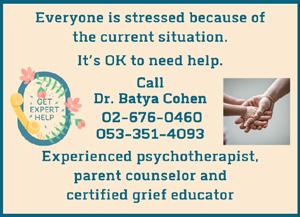
OU ISRAEL CENTER 17


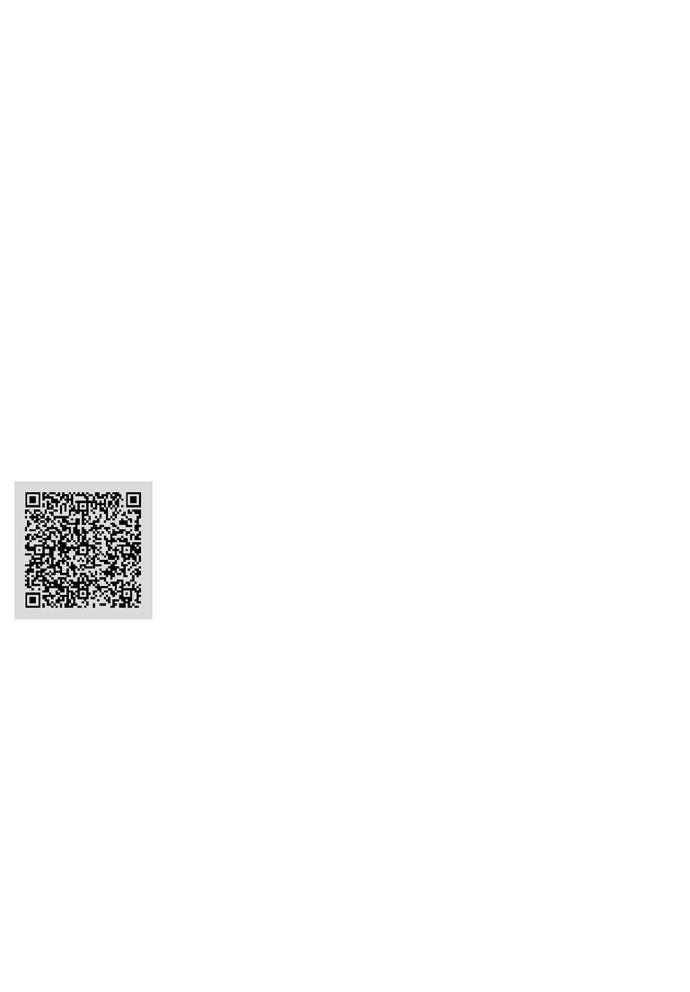

before after
and our next step will be to plant a fruit tree. I never thought of myself as being the agricultural type, but the feeling of settling and planting a portion of Eretz Yisrael, has been truly euphoric. Iy”H, when we plant our tree, and eat the fruits that will grow one day, I think we will be able to truly appreciate that unique Kedusha found in

Revitalize Your Home:
Sofa | Mattress | Carpet with CLEANEXT Cleaning Experts!
To conclude, when you buy your Tu B'shvat fruit this year, don’t search for those dried apricots and banana chips imported from Turkey. Rather, head over to the fresh produce and buy yourself some nice juicy Kedusha-filled Jaffa oranges and thank Hashem for bringing you to this land in order to be able to הבוטמ עבשלו הירפמ לוכאל,
Transform your living space with our professional cleaning services. Say goodbye to stains and odors, and hello to freshness and comfort. Experience our exceptional service with a highly recommended, no-obligation demonstration in your home.
Contact us now for a consultation!

052-2200222





19 75
2024 PESACH IS COMING! LET US STRENGTHEN YOUR LOOSE & SHAKY FURNITURE DON’T WAIT UNTIL IT’S TOO LATE ! UNTIL
1898
הידמ קויד

PROBING THE PROPHETS
BY RABBI NACHMAN (NEIL) WINKLER
Har Sinai vs. Har Carmel
This week’s haftarah is taken from the 18th perek of Sefer M’lachim A and relates the story of Eliyahu HaNavi’s confrontation with Achav, the corrupt king of the northern tribes in Shomron. The well-known episode is read on parashat Ki Tisa (when it is not superseded by one of the special pre-Pesach readings) in order to underscore its parallel to the sin of the golden calf, the main focus of our parasha. The similarities are clear: a navi (Moshe/Eliyahu) confronts the sinners of Israel at a mountain (Sinai/Carmel) for having worshipped a foreign god (Calf/ Ba’al); through a dramatic public display (shattering the tablets/heavenly fire consuming the offering) the leaders move the gathered throng to teshuva and punish those who sinned.
Nonetheless, despite these similarities, there are significant differences between the two events. Rav Shimshon Raphael Hirsch shares some of the background to the “contest”
allowing us to better understand the situation in Shomron. King Achav, who was married to the Phoenician princess, Izevel, is considered as being worse than any previous king. He allowed Izevel to persecute the prophets of Hashem and, together, they spread the worship of Ba’al, throughout the kingdom – including erecting an altar to Ba’al in the royal palace! This was the state of affairs that existed in Shomron when Eliyahu challenged the populace to the “showdown”.
However, Rav Hirsch reminds us that this generation, in contrast to those who left Egypt, never experienced a “redemption” from slavery, nor saw any miraculous plagues against their oppressors nor witnessed any revelation at Yam Suf or Har Sinai. For these people, their thirst for water - both for themselves and their crops - was their greatest concern – and any “power” who could end the three-year drought would be the power they would worship.
This was Israel’s difficult situation.
Six centuries earlier the situation was quite different. Led by the greatest prophet who ever lived, the nation witnessed the miracles and wonders of G-d. It was they who were released from years of bondage, they who marched through the waters of Yam Suf, they who heard
Dedicated L’iluy Nishmat
Our beloved husband, father, grandfather and great-grandfather whose 5th yahrzeit falls on ׳א רדא ז”כ
ל”ז ןושרג
Barnett Brickner z”l
whose first yahrtzeit is on
20 TORAH TIDBITS 1555 / KI TISA
תמשנ יוליעל
Faculty, OU Israel Center Rabbi Winkler's popular Jewish History lectures can be viewed by visiting the OU Israel Video archive: https://www.ouisrael.org/video-library
ונריקי
ל”ז יולה לאקזחי ןב הנוי
Dr. John Yona Jacobs z”l
ךורב ורכז יהי
ןב
בד
באז
א”כ
רדא
Hashem’s proclamations at Har Sinai and who were nourished by His heavenly mahn. And it was they who sacrificed to the golden calf!
Given the clear differences between these two sinful acts, we might rightfully wonder why, after their punishment, the desert nation was forgiven and allowed to continue their journey to Eretz Yisrael – although the journey was not completed due to the sin of the meraglim. Yet, the generation of Eliyahu, one that was led by a corrupt king, and the nation that had been led by corrupt leadership for almost 200 years (each and every past king of Samaria had continued the sins of the past) –this generation was never forgiven, eventually being lost in exile. Why was this generation never given any atonement?
The simple answer is….the lack of honest teshuva.
Consider: after descending the mountain, shattering the luchot and punishing the sinners, Moshe Rabbeinu informed the people of Hashem’s pledge to no longer accompany them through the desert. The nation reacts“Vyit’abalu” – they were grief-stricken. And, as a result, they removed their jewelry – not only as a sign of mourning but also as a public display to proclaim they now reject the very material they used to fashion the golden calf. Simply, it was an act of mourning and of contrition.
Not so, the later generation.
Although those assembled at Har HaCarmel fell to their faces and cried out “Hashem Hu HaElokim”, that Hashem is the (true) G-d, no mourning or contrition followed. The people did not confess; they did not repent; they did not improve. Despite the powerful demonstration of G-d’s power and His presence, the idolatry continued. In fact, the very next perek (18), just two verses after the

great confrontation, we read how Eliyahu, the great hero of Har HaCarmel, had to flee from Shomron to escape the murderous threats of Queen Izevel….and there was no one to oppose, defend, or help the prophet.
Nothing had changed.
We now understand the frustration of Eliyahu when he cries: “Enough! Now, Hashem, take my life for I am no better than my forefathers!” (18: 4) The prophet sees his life’s work as a failure. There were miracles; there were signs…. but there was no teshuva.
Repentance is not accomplished by miracles. Only sincere remorse and regret can move one to improve.
OU ISRAEL CENTER 21
Wills • Probate • Pre & Post-Nuptial Agreements Guardianship • Durable Power of Attorney (Financial/Health/Personal Decisions) tirtzaj@gmail.com • 052-509-3356 • 02-625-6475 (845) 425-8871 • (845) 694-7645 HALACHIC ESTATE PLANNING TIRTZA JOTKOWITZ, ESQ.

RABBI SHALOM ROSNER
Rav Kehilla, Nofei HaShemesh Maggid Shiur, Daf Yomi, OU.org Senior Ra"M, Kerem B'Yavneh
A Stubborn People
הנהו הזה םעה־תא יתיאר השמ־לא ’ה רמאֹיו םהב יפא־רחיו יל החינה התעו :אוה ףרע־השק־םע )י-ט :א”כ תומש( :לֹודג יֹוגל ךתוא השעאו םלכאו
And Hashem said to Moshe: “I have seen this people and behold! they are a stiffnecked people. Now leave Me alone, and My anger will be kindled against them so that I will annihilate them, and I will make you into a great nation.” (Shemot 31: 9-10).
CHARACTERISTIC RATHER THAN TRANSGRESSION
Following the transgression with the Golden Calf (chet ha’egel) God tells Moshe that he wants to destroy the Jewish people and begin a nation with his descendants. One would have thought that the reason stated in the Torah for wanting to destroy the nation is that they are idolators. Yet, the reason given by Hashem is השק םע

ףרע - they are a stiff-necked people! Rather than state the sin (אטח) they committed as the trigger for the punishment, God cites a characteristic (הדמ), stubbornness.
Rav Sternbach (תעדו םעט) offers an insightful explanation. There is no more inferior character trait than stubbornness. As long as one is open to listening and internalizing constructive criticism, they can improve. However, when one is stubborn and unable to hear a critique, they will never improve. With an attitude of “its my way or the highway” one will never change for the better.
When channeled properly, the middah of stubbornness can be a positive trait. Am Yisrael survived throughout the generations because they stood by their belief in God. Notwithstanding the oppression and suffering, as a stiff-necked people we stood by our principles and hung on to our religious beliefs. However, if we are stubborn when hearing criticism, it will stunt our growth.
Mitzvot to Counter Stubbornness
The Smak who enumerated the 613 mitzvot counts two mitzvot that are not included by the Rambam, that are meant to counter being ףרע השק – stubborn.
Mitzva 9 - בל תלרע לומל to circumcise the foreskin of the heart. Essentially to be able to hear another’s critique of our actions. To be able to accept rebuke and to appreciate the person who is delivering the rebuke, as they are acting for our benefit.
Mitzva 14 –
Not to
22 TORAH TIDBITS 1555 / KI TISA
ויניעב קידצ תויהל אל –
consider oneself a righteous individual. If one thinks they are a tzaddik, then when they hear rebuke, they will assume it is directly at others since they are a Tzadik and do no wrong. We should internalize rebuke so that we can improve upon ourselves.
INTERNALIZING CRITIQUE
A story is told about Rav Isser Zalman Meltzer who once attended a shiur in which the Rav gave musar to the crowd. After the shiur Rav Isser Zalman went up to the maggid shiur and proclaimed: “how could you embarrass me like that – speaking about me in public”? The Rav was perplexed. I was not talking about you specifically, I was just giving musar to the crowd. It took days for Rav Isser Zalman to forgive the Rav. Rav Isser Zalman internalized what he heard. He let it pierce his heart and he did not consider himself a Tzaddik.
In Kriyat Shema we state: םכבבל לע הלא heart. Why don’t we says hearts. Sometimes we are not ready to inter nalize, so at least let it remain on our hearts and eventually it will pierce our hearts.
We should work hard to ensure that we are not stubborn and that we can open our hearts and accept constructive criticism so that we can constantly improve our middot.

ARNONA
FOR SALE
Great 3 rooms, 78m, in a building with Shabbat elevator, balcony, good shape, large living room, master bedroom, parking, storageroom, quiet.
2,850,000 NIS
RASKO, GOOD DEAL!
4 rooms + large separate unit, elevator, balcony, good shape, 3 directions, parking, quiet.
3,350,000 NIS
ARNONA
Nice 4 rooms, 90m, elevator, balcony with view, good shape, large living room, master bedroom, quiet, 2 parkings, storageroom. 3,350,000 NIS
HEART OF BAKA
Great location, lovely 3.5 rooms, 80m, 2 balconies, exit to garden, renovated, master bedroom, quiet. 3,560,000 NIS
28, Kovshei Katamon Street, Jerusalem
Tel: 02.5633008 - www.ben-zimra.com





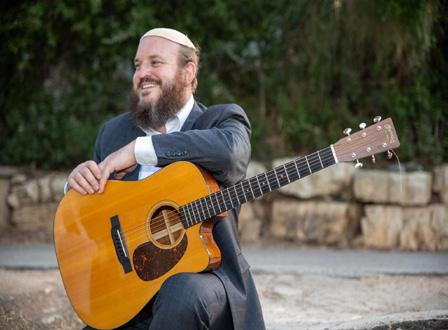


MARCH 12, 2024



OU ISRAEL CENTER 23
AN EVENING WITH RAV SHLOMO KATZ TUESDAY,
8:00 P.M. ‧ 50₪
REBBETZIN SHIRA SMILES
Faculty, OU Israel Center
Lofty Luchot
We find in our parashah a description of both the first and second sets of luchot. The first set were “ma’aseh Elokim heimah, ve’hamichtav michtav Elokim hu, charut al haluchot – made by G-d and written with G-d’s script engraved on the tablets.” (Shemot 32:16) Moshe Rabbeinu fashioned the second set at Hashem’s command, “Pesol lecha shenai luchot avanim karishonim vekatavti al haluchot et hadevarim asher hayu al haluchot harishonim asher shibarta - Carve out two tablets for yourself, just like the first ones. I will write on those tablets the same words that were on the first tablets that you broke.” (Shemot 34:1) Let us explore some of the deeper implications found in the differences between these two sets of luchot.
Avnei Nezer explains that the luchot mirror the composition of a Jew. The script represents the ethereal neshamah, the stone, his physical form. When the first luchot were given, Am Yisrael returned to the spiritual level of Adam Harishon before his sin and their bodies were completely sublimated to their souls. Chazal therefore tell us to read “charut,” engraved, as “cherut,” freedom,
Torah Tidbits distribution team wishes a special Mazal Tov to our valued TT volunteer, Robert Rosenzweig and his wife Lucy on the marriage of their son Hodaya
as they were free from the negative forces impeding the connection of their soul to its Divine Source. At that point, body and soul worked in perfect tandem, both expressing Hashem’s Will fully, “made by G-d and written with G-d’s script.” Only Moshe Rabbeinu was successful in maintaining this level, hence his face shone from the light of his neshamah that emanated from his physical frame.
After the sin of the Golden Calf, the tablets were hewn by Moshe Rabbeinu, a human, but written by G-d, reflecting the continuous struggle and tension between our spiritual and physical desires. Now, body and soul are in conflict and it requires significant effort on our part to open ourselves to a higher spiritual reality.
The Novominsker Rebbe offers an additional insight. The midrash in Shir Hashirim Rabbah expounds on the verse, “His left hand was under my head, His right hand would embrace me,” (Shir Hashirim 2:6) and tells us that it refers to the different circumstances of each set of luchot. When the first luchot were given, The Jewish people were on a very elevated spiritual level, their “head” was supported by Hashem’s “left hand” of strict justice, precluding any sort of doubt or unclarity. After they sinned with the Golden Calf, Hashem enveloped the “body” of Am Yisrael with His “right hand” of love, showing that even after we sin, He continues to embrace us and draw us close through Torah.
In truth, notes Rav Dessler, each Jew in every generation is obligated to make his/
24 TORAH TIDBITS 1555 / KI TISA
her heart a medium to accept Hashem’s Torah, to allow Torah to be “engraved” upon our hearts. This is why, teaches Rav Dessler, traditionally we draw the luchot in heart-like shape even though really the luchot were cubes. This reminds us to open our hearts to the words of Torah that we learn, to integrate and internalize Torah values so that we project the ratzon Hashem in our every thought, word and deed.

JERUSALEM SALES
NEW PROJECTS - Excellent Opportunities
Desirable Neighborhoods - Call For Information
SHAAREI CHESSED / RECHAVIA
*Duplex! 5 bdrms, 25 sqm kitchen, succah, shabbat elevator, 2 parking, storage.
*New 228 sqm duplex penthouse, 30 sqm succah, shabbat elevator, parking, view
TALBIEH
250 sqm + 200 sqm garden, private land
NACHLAOT
2 rms, priv entr, storage room, NIS 2,190,000
OLD KATAMON
*Renovated 3 bdrm, ensuite MB, succah, low floor *160 sqm 4 bdrms, garden, storage, parking
HAR NOF -New listing!
Centrally Located– 10 room duplex with 400 sqm garden (room for a pool), excellent condition
MEKOR CHAIM - NEW PROJECT
126 sqm, spacious 4 bdrms, succah, 3 exposures, 2 parking, storage. Close to Baka & G. Colony
SALE/RENTAL - RAMOT B
Cottage, 200 sqm, 5 bedroom, 3.5 bathrooms, semi furnished, garden, view. Option for a unit
FOR MANY MORE PROPERTIES: 02-651-4030




OU ISRAEL CENTER 25
Eiferman Properties www.eifermanrealty.comLtd. SMART HOME INSTALLATIONS Free Consultation Take Command of your Home with your Phone Fully Automatic Trisim, AC, Lights, Dud and More.... Unmatched English Excellence and Service Upgrade your Home, Elevate your Life! The Future is Now! Join us for an uplifting Pesach at the luxurious Ramada Jerusalem Hotel Luxurious and spacious rooms • Festive gourmet meals • Activities for the entire family every day of Chol Hamoed • Health club that includes: heated indoor pool with separate hours, sauna • Shiurim during Chag and Chol Hamoed for English-Speakers • The best deal at an attractive price! Contact our representatives to receive fantastic pricing. Tel. 972-3-6166888 Email: izk@giltours.co.il Mehadrin Rabbanut Yerushalayim and non Gebrochts | Shemura Matza | Shmitta Lechumra Refund Guaranteed! In case of Security danger or sickness U הידמ קויד





TORAH TIDBITS 1555 / KI TISA J O I N A T E A M T H A T W I L L P R E P A R E T H E G I F T S H E L P U S D E L I V E R M I S H L O A C H M A N O T T H R O U G H O U T T H E C O U N T R Y PROVIDING SUPPORT TO 4500 TERROR VICTIM FAMILIES C H A V I V A : 0 5 4 - 6 6 4 4 1 8 6 W W W . O N E F A M I L Y T O G E T H E R . O R G I N F O @ O N E F A M I L Y F U N D . O R G B r i n g t h e s p i r i t o f P u r i m i n t h e f o r m o f M i s h l o a c h M a n o t t o f a m i l i e s a n d v i c t i m s o f t e r r o r t h r o u g h o u t I s r a e l . S P O N S O R T H E S E G I F T S 3 W A Y S Y O U C A N P A R T I C I P A T E : Help us spread the joy of Purim
be in loving memory and
our dear parents whose yahrtzeits are in Kislev
been memorialized in a popular song, "An eternal people does not fear the long and arduous path."

Doris Weinberger a"h
ולסכ 'ד -ה"ע המלש לאקזחי תב האל הרובד
ANGLO- SAXON-JERUSALEM ISRAEL’S LEADING REAL ESTATE NETWORK
Max Weinberger z”l
ולסכ ז"כ -ל"ז בד ןב ךלמילא
FOR SALE:
Greatly missed by their children, grandchildren and great grandchildren
NEVE DANIEL (30 min. from Jerusalem) 7-rooms in a lovely two-family home, 250/350 sq.m. Large lavish garden, private parking, Spectacular Southern view Exclusive!
Rav Aryeh and Dvora Weinberger
Sigalit: 053-6302548
Bernie and Leah Weinberger
Patience is necessary for those who follow Isaac's way. But a wise woman taught us that patience is but another name for hope. That woman was Jane Austen, who put these words into the mouth of one of the characters in her great novel, Sense and Sensibility: "Know your own happiness. You want nothing but patience—or give it a more fascinating name: call it hope."
SEALING SERVICES
Menachem and Hannah Katten
IN PICTURESQUE YEMIN MOSHE
Rare one-of-a-kind property ~200 sq.m (including original thick walls) of Office space (architects, lawyers) \ art gallery \ winery, etc. Quiet. Exclusive!
Galila 053-9345985
In observance of the Shloshim of our friend Yehuda Leib Berren z"l
YEMIN MOSHE
Unique picturesque home with views to the Old City, 174 sqm, 5.5 rooms, arched ceilings & windows, separate entrance unit, close to parking, walking distance to the Old City, Mamila, Major hotels. Exclusive!
Rav Menachem Weinberg will give a shiur in his memory "Heroic Joy"
Monday evening, 23 November/ 8 Kislev 7:30pm
Nava 053-6642512
shmuelnathan4@gmail.com
3 Moshe Hess St., Jerusalem 0778038511
Zoom Meeting: 853 8980 1519
Password: Yehuda


OU ISRAEL CENTER 27 OU ISRAEL CENTER 15
052-385-9944 • 054-499-9043
נ"על

RABBI JUDAH MISCHEL Join Me!
Educated in Frankfurt am-Main and in the great yeshivahs of Lithuania, Rav Shimon Schwab was a talmid chacham and traditionalist interpreter of the path of Torah im Derech Eretz, balancing strict observance with a conservative participation in Western society. Rav Schwab composed Ma’ayan Beis haShoeiva and numerous other classic Torah works, and for many years led K’hal Adas Yeshurun in Washington Heights, Manhattan.
In the spring of 1930, As a 20-year-old yeshivah student, Rav Schwab had the privilege of spending a weekend with Reb Yisrael Meir Kagan, the great Chafetz Chaim. This experience made a strong impression on the young ben Torah. Rav Schwab would often refer to the encounter as a watershed moment in his life, and continued to draw insight and inspiration from it throughout his life.
During their initial meeting on Erev Shabbos, following cursory inquiries as to his background and family, the Chafetz Chaim surprisingly asked Rav Schwab if he was a Kohen. “No,” was his reply. “Are you a Levi perchance?” Once again, the young bachur replied in the negative.
“Aha,” said the Chafetz Chayim, “perhaps you have heard, I am actually a Kohen. Soon, Mashiach will arrive and the Beis haMikdash will be rebuilt. All we have yearned for over
two thousand years will be realized. The kohanim and Leviim, will be privileged to fulfill our respective duties. You, young man, however, will not have the zechus of performing the avodah, and will have a different role altogether. Tell me, young man, why, in fact, are you not a Kohen?”
“I am not a Kohen because my father is not a Kohen,” answered Rav Schwab, now confused. The Chafetz Chayim continued to press him: “And tell me, your father, why is he not a Kohen?”
By now, Rav Schwab understood that the Gadol Hador was driving at something, so he remained silent and waited for the lesson that was unfolding. The Chofetz Chaim’s kind and gentle eyes were filled with a fire of intensity….
“Allow me to explain. About 3,000 years ago, all of us stood together at Matan Torah and experienced the peak of human history. The Ribbono Shel Olam gifted us the Torah, the greatest expression of His love and trust in us. And then…” He paused and cleared his throat. “...And then we fell to the lowest places at the Cheit haEigel. At that moment, Moshe Rabbeinu descended from Har Sinai and, shocked at the sight of Jews dancing around the Golden Calf, abruptly shattered the Luchos. ילא ׳הל ימ, he cried, ‘Whoever is for Hashem, join me!’”
“You see, that’s when my zeidy’s zeidy, a member of Shevet Levi, answered the call and stood up against the idolatrous celebration, while your family did not!
28 TORAH TIDBITS 1555 / KI TISA
Executive Director, Camp HASC Author of Baderech: Along the Path of Teshuva (Mosaica 2021)
“My dear young man, listen carefully. In the course of your life, there will be times when you will be faced with the opportunity to heed Moshe’s cry of ילא ׳הל ימ, ‘Whoever is for Hashem, join me!’ Make sure to listen to him and act accordingly; actions have repercussions for many generations!”
…אוה ערפ יכ םעה־תא השמ אריו ילא ׳הל ימ רמאֹיו הנחמה רעשב השמ דֹמעיו :יול ינב־לכ וילא ופסאיו Moses saw that the people were out of control…And Moses stood up in the gate of the camp and said, “Whoever is for Hashem join me!” And all the men of Levi rallied to him. (Shemos, 32:25-26)
The tragic degradation and traumatic experience of the Cheit haEigel sadly remains imprinted on the collective consciousness of Klal Yisrael. The callous rebelliousness and reprehensible behavior we exhibited in the shadow of the awesome revelation at Har Sinai is a painful memory and a stain that we have still not completely reconciled.
Reb Shraga Feivel of Gritza, the first of the Alexander Rebbes, visited the Chozeh of Lublin. The Chozeh asked, “Feiveleh, do you know what was the deepest tragedy of the Eigel haZahav?” Reb Shraga Feivel answered what he thought to be obvious: “Klal Yisrael made a graven image, bowed to it and were guilty of avodah zarah.”
“You are mistaken,” said the Lubliner. “That was certainly a grievous error. But what exacerbated the Cheit, making it such a tragedy, was that a little later (Shemos, 33:4), ולבאתיו, ‘they mourned.’
Instead of immediately acting on the recognition of their wrongdoing, Bnei Yisrael were consumed with regret and were
broken by their mistake. When Moshe Rabbeinu called them to immediately turn back to Hashem, there was an opportunity for immediate rectification. Not only did most of the nation hesitate, they fell further and plummeted into a dark depression. Even after the Leviim had slayed the instigators, and Moshe had ascended the Mountain to ask for the people’s forgiveness, and a plague struck those who had taken part in the sin but were not warned against it — the people still “mourned” the aveirah. They had repeatedly missed those opportunities to apply themselves in teshuvah and “join” Moshe.
Even today, the cry of ילא ׳הל ימ continues to reverberate in different ways. We are called to awaken and recognize our errors — and to summon the faith to change our trajectory as quickly as possible. Wallowing in grief may seem appropriate, but it is really an egoic reaction which only drags us down further. Our tikun is only ‘complete’ when we lovingly accept ‘Moshe’s rebuke’, and return, with joy, to our derech.
As we revisit the embarrassing episode of the Golden Calf once again, let us internalize the Chofetz Chaim’s message: ‘No matter our mistakes, may we get up right away and stand with Moshe, with our sages, our rebbes and wise friends. May we let go of guilt and grief as soon as they have done their job, return to serving Hashem b’simchah, and go up all together to our “Land flowing with milk and honey” (33:3)….
…הנירב ןויצ ואבו ןובושי ׳ה ייודפו And Hashem’s ransomed shall return, And come with shouting to Zion, Crowned with everlasting joy. They shall attain joy and gladness, While sorrow and sighing flee. (Yeshayahu, 35:10)
OU ISRAEL CENTER 29

SIMCHAT SHMUEL
BY RABBI SAM SHOR Program Director, OU Israel Center
Parshat Ki Tisa, of course, contains the tragic episode of Chait HaEgel, the Golden Calf, and its aftermath.
In the pasuk, which is familiar to us as the opening verse in the Kriat HaTorah for a Taanit Tzibur (Public Fast Days), we read these well known words:
’ה המל רמאֹיו ויקלא ’ה ינפ־תא השמ לחיו חכב םירצמ ץראמ תאצוה רשא ךמעב ךפא הרחי הקזח דיבו לֹודג
And Moshe pleaded (vayechal) before Hashem “Why let your anger, Hashem, be directed toward Your people, whom You delivered from the land of Egypt with great power and with a mighty hand.
The word for “pleaded” - vayechal - is an unusual word to be used in this context.
Chazal (Gemara, Brachot 32a) offered several interpretations as to why this particular word, vayechal, is used to describe Moshe’s prayer on behalf of the Jewish People.
“And Moshe pleaded [vayechal] before Hashem” : Rebbi Elazar said: It teaches that Moshe stood in prayer and exhausted himself before HaKadosh Baruch Hu, until it made him ill [hechelahu] ...
According to Rebbi Elazar, vayechal shares the same root as choleh (sick). Moshe davened so intensely on behalf of Klal Yisrael that he became ill.
Mazal Tov to Sara & David Bedein on the marriage of their daughter Ruhama Leah to Itamar Pollak, son of Naomi & Eliezer Pollak
It was taught in a beraita: Rebbe Eliezer HaGadol said: This term teaches that Moshe stood in prayer before HaKadosh Baruch Hu, until he was overcome by achilu. What is the meaning of achilu? Rebbi Elazar said that achilu is eish shel atzamot- fire in the bones...
Rav Kook zy’a, offered the following insight in interpreting our gemara.
Moshe Rabbeinu became totally consumed with his effort to plead the case of Am Yisrael before HaKadosh Baruch Hu. He was overcome with an eish shel atzamot - a fire in his bones. The word etzem can mean both bone, as well as essence.
At this important juncture, as he pleaded on behalf of the entire Jewish People, Moshe experienced a revelation of a fire from within, a fire of compassion, a fire that essentially defined who indeed he truly was! In his essence, he was not only inextricably bound to every member of Klal Yisrael, but also desired to do everything within his power on their behalf! At this critical moment, Moshe was able to channel that inner fire, and advocate for all of Klal Yisrael.
Yehi Ratzon, as we continue to navigate our current challenges,may each of us like wise be blessed to find our own inner fire, to feel that inseparable bond with every member of Klal Yisrael, and be inspired to do everything we possibly can to help one another face and overcome challenges together and to grow and succeed.

30 TORAH TIDBITS 1555 / KI TISA
Still haven’t taken care of writing your Will?
Meet EZwill – your online Will creation service!
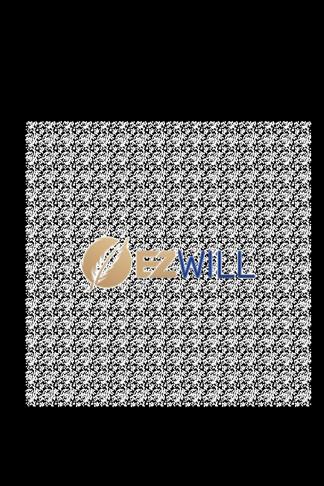
Simple & secure Affordable Step-by-step guide Option for Halachic addendum
Created and supported by an Anglo-Israeli lawyer with 15+ years experience

Wednesday Morning Lecture Series

First speaker each week at 10:15 a.m.
Topic: A Rabbi Archaeologist's Journey into Biblical History





Second speaker each week at 11:30 a.m.
Topic: Halacha and Its Application to a Modern World








31
Refreshments Provided
Admission ₪30
‧
Visit www.ezwill.co.il and finally get it done!
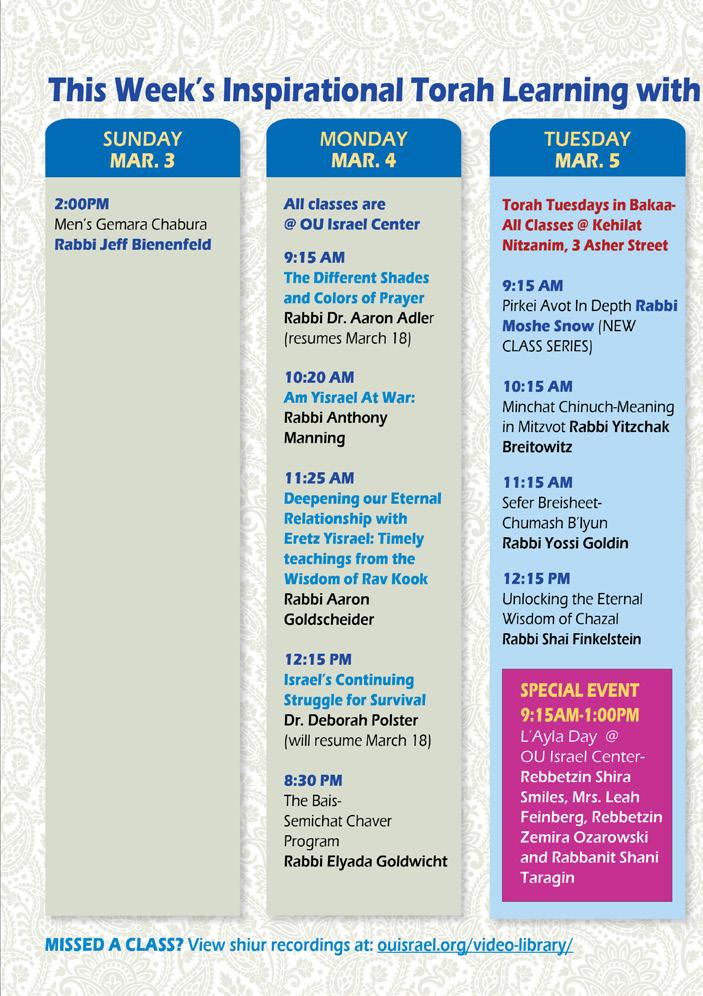
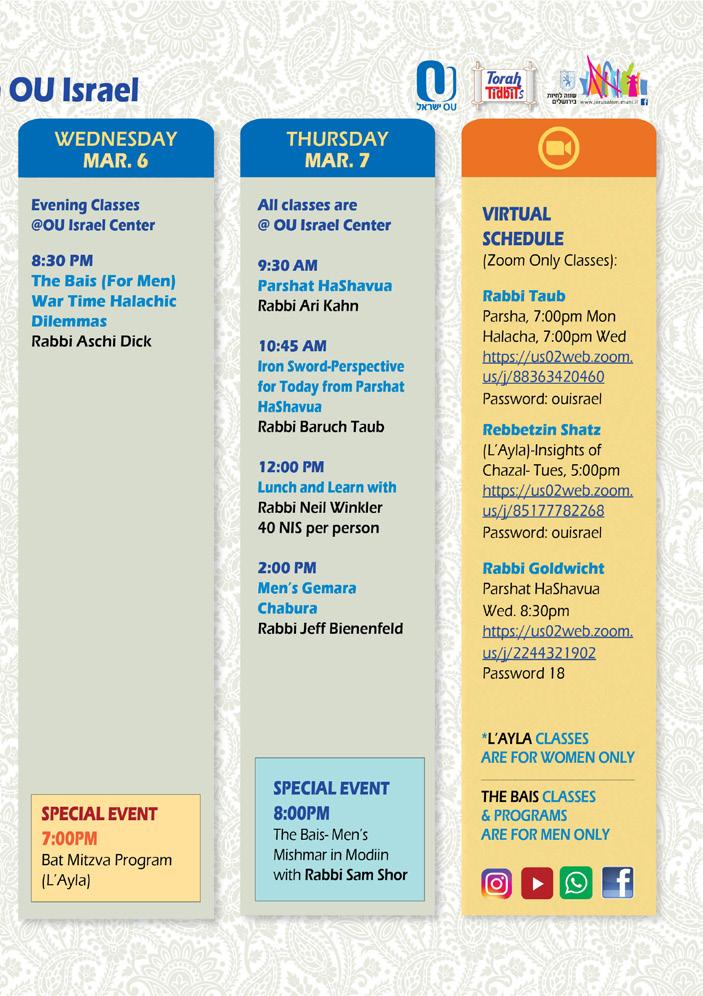


34 TORAH TIDBITS 1555 / KI TISA


OU ISRAEL CENTER 35
LIFE SETTLEMENTS
Do you have a life insurance policy you:
• No longer want?
• No longer need?
• Can no longer afford the premium?
• Could you use extra money instead of keeping your policy?
I can guarantee that if you qualify with the underwriting process I can get you more money than if you cash it in with the company.
Smadar 050-3114040 // 02-642-4329 smadi_bida@walla.co.il
Please contact Moshe Russell at: Buymypolicy32@gmail.com
Monday mornings 10.30-12.30
Tuesday
For more details, call Ruth 02-628-7359 or Judy 054-569-0410
Torah Tidbits distribution is looking for the right connection to help get TT to TZFAT and KARMIEL each week Call Toni at 0505-772-111
SIT: Exercise for
Resumes Oct 15th 12:30-1:15pm
Sundays 12:45-1:30pm at the OU Israel Center
Sura Faecher 0504153239
SHIUR SPONSORS
MONDAY, FEBRUARY 26TH - ALL DAY LEARNING was sponsored by Hally Frist in memory of her father Louis Wenig z"l - ל"ז ןורהא השמ ןב רזעילא
On his 10th yahrzeit - ׳א רדא ז"י ה.ב.צ.נ.ת


36 TORAH TIDBITS 1555 / KI TISA DOROT - The OU Women's Intergenerational Choir Director Hadassah Jacob 052-384-7230 Monday Evenings 7:00-9:00pm Call to check OU ISRAEL CENTER 91 because essence. Sinai physical mitzvot matters. that voice, afterlife. I canFor no foland comreal amazing teachreceived us in Israel shulmanj@ou.org
For Sale: Ben Maimon, 4 rooms, 113m, 2 bathrooms, porch, 1st floor, elevator, 6.2 million NIS
PRI HADASH WOMEN'S WRITING WORKSHOP AT THE OU ISRAEL CENTER
check
Call to
המלש האופר הניאר תב הרוא
celebrate,
Two boys from broken families urgently need help to prepare for, and
their Bar Mitzvot
See What We Do and to Donate: www.Yeshezra.org
Bank transfer: Mercantile (17), Branch 642, A/C 79747843
tax receipt
Send Asmachta for
HELPING THE HOME FRONT ASSISTING THE NEEDY
WHILE
Checks: “Yesh Ezra,” POB 31476, Romema, Jerusalem Credit Card: Sara – 077-820-0196. Sun/Mon/Wed (10:15am-2.45 pm) Inquiries: Menachem Persoff 050-570-1067 | menpmp@gmail.com
GET FIT
YOU
ladies





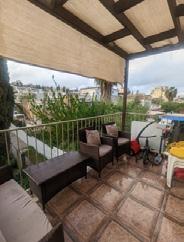
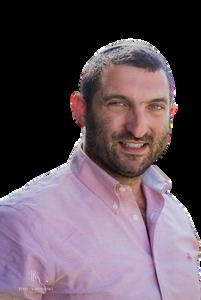


OU ISRAEL CENTER 37 Duplex Apartments in a Brand New Project on Rabbi Halafta Street yitzchak@yykrealestate.com 054-766-0338 www.yykrealestate.com LOOKING TO PURCHASE/RENT A PROPERTY IN JERUSALEM? LET US FIND YOUR DREAM HOME! Private land! S abba e e a o , pa g & s o age oss b y o bu d g g s o a o e 90 sq base e Brand New Project: Mekor Chaim 54 3 bedrooms: 90sqm + 9 sqm balcony 2 bedrooms: 66 sqm + 4 sqm balcony Balcony (Succah), Shabbat elevator Underground parking, Storage High-end specs Occupancy: Summer 2024 Luxurious Mini-Penthouse in the Ganei Tzion Complex 3 Bedrooms + 2 5 bathrooms Fully Furnished Floor Heating, Central A/C, 2 Shabbat Elevators, Private parking, Storage, Gym, Shul Available: 01/04/24 FOR RENT N e w P r o j e c t o n M e k o r C h a i m Last 4 bedroom in the project: 135 sqm + two 6 sqm balconies Includes: Parking, Storage, Shabbat elevator High-end specs Available: 10/24 N e w E x c l u s i v i t y o n R i v k a S t r e e t i n B a ’ a k a 2 bedroom, 2 baths 85 sqm Shabbat elevator Central A/C + heat Small balcony off the bedroom New Exclusivity in Katamonim Located on Nehorai Street 2 bedroom, 1 5 bath 66 sqm + 7 sqm balcony Option for Pinui/Binui

GEULAS YISRAEL
YISRAEL
BY RABBI MOSHE TARAGIN R am, Yeshivat Har Etzion
Learning to be Like Ketoret
The ketoret mixture of herbs and spices contained 11 different elements. One of the herbs was known as chelbanah which, by itself, had an unpleasant smell. Yet, when chelbanah was mixed with other herbs and resins it became aromatic and pleasant. Once included in the broader ketoret mixture, it enhanced the overall scent.
Chazal viewed ketoret as a metaphor for the inclusion of rogue Jews. Based on the insertion of chelbanah in ketoret, the gemara in Keritut (6b) encourages us to include sinners or reshaim, even in the special tefillah gatherings of a fast day.
An intriguing halachic debate developed about forming a minyan of exactly 10 men by including a rasha or a sinner. Based on the gemara’s endorsement, many sanctioned the inclusion of sinners in a minyan of exactly 10. Alternatively, others (see the Mabit, Beit Elokim, Sha’ar Tefilla, chapter 13) required 10 pious Jews for the core minyan, after which, non-observant Jews could be added. After all, they claimed, the ketoret mixture itself contained 11 elements, 10 of which were aromatic. Having built a base unit of 10 proper elements, the foul-smelling chelbanah could be added. The Shulchan Oruch (Orach Chaim 55:11) rules that we can include a rasha, even for a minyan of exactly 10 people.
In a broader sense, beyond the halacha
itself, this gemara provided a paradigm for the inclusion of errant Jews within the Jewish community. Though we generally titled toward inclusion, there were moments in Jewish history that we were forced to adopt a harsher policy of exclusion.
YEAR ONE VS YEAR TWO
Within a two-year period in the desert, Moshe adopted two very different policies toward sinners. He had allowed millions of Egyptians, known as the eirev rav to assimilate within our nation. Even though they spearheaded the eigel debacle, Moshe didn’t flinch. Instead, he prayed for teshuva and for full acquittal for the entire nation. His initial approach was inclusive.
Yet, as the first year in the desert turned into the second, Moshe began to realize the corrosive effects of sinners. Facing a raging Korach insurrection, he petitioned Hashem to, literally, remove the sinners from this Earth. Moshe’s stunning reversal highlights the delicate calibration between inclusion and exclusion of sinners. Based upon the ketoret inclusion of chelbanah, we generally aspire to inclusivity but, alternatively, we sometimes are forced to expel toxic ‘herbs’ from the mixture of our people.
Part of what caused Moshe’s reversal was the differing agendas of the sinners. The eigel sin was caused by fear, insecurity,
38 TORAH TIDBITS 1555 / KI TISA
and caving to base desires. Assuming that Moshe had died, the frightened nation craved a physical interface with Hashem. Though their idolatrous revelry was repugnant, they didn’t threaten the socio-religious structure. They were weak and confused, but they didn’t rebel against authority.
Korach, however, seceded from the established order, looking to create a rival faction to Moshe’s leadership. Since he threatened religious authority and could potentially destabilize the social structure, he had to be eliminated. Fallen sinners can be integrated into the mainstream and included within religious and communal life. Separatists badly splinter society, subvert religious authority, and must be sidelined.
DENIERS OF TORAH SHEBA’AL PEH
One conspicuous situation in which inclusion was impossible was the split caused by the deniers of Torah sheba’al peh. During the second Mikdash era, first the Sadducees and then, subsequently, the Kara’im rejected the authority of Torah sheba’al peh, thereby threatening the integrity of our masorah. As they adhered to a strict but deviant version of “halacha” they could not be referred to as classic reshaim who abandon observance. Still their deviances from Rabbinic Judaism were so grave that there was little room for integration. By denying the foundation of Torah sheba’al peh they committed a gross “intellectual sin” leaving little room for ketoret-style inclusion.
CHASSIDUT AND NEW DENOMINATIONS
In the 18th century, Chassidut asserted a bold new claim: Hashem didn’t just create us “in His image”, but also implanted a “part” of Himself or שממ לעממ ה-ולא קלח into every Jew. No sin, however severe, could ever spoil






that inner divine endowment. No matter how far he strayed every Jew still stood in the presence of Hashem, since Hashem was, effectively, still inside of the sinner. This doctrine of Chassidut offered a new language of inclusion. Chassidut opened its arms to Jews, regardless of their level of religious performance. Unfortunately, in the next century those arms would close, as Chassidut and the rest of Orthodox Jewry faced an unprecedented challenge to Jewish peoplehood.
Enlightenment invited Jews into mainstream Gentile society, offering them full rights and citizenship. Seeking to better “fit in” in their surroundings, millions left classic Orthodoxy to form new streams of Judaism. The doctrine of Chassidic inclusion was originally geared to individual Jews who veered from religious adherence. It wasn’t designed for institutionalized departure
OU ISRAEL CENTER 39 NEW OFFER PRE-SALE IN OLD KATAMON Whatsapp +972 (0) 52-2636656 usa# 5164675892 , uk# 2037697899
1-5 BEDROOMS APARTMENT,
13 UNITS AVALIABLE
COSY 2BR , 60 SQM WITH ELEVATOR, BALCONY, HIGH CEILINGS - 2.750.000 NIS
ONLY
-
2.45M NIS
For more offers more Call now: 077-9973185
RECHAVIA BORDER CITY CENTER - SHATS STREET
Gershon Agron 24, Mamilla - Jerusalem
RENOVATED TO AN HIGH END, HIGH CEILINGS , SUCCAH, ELEVATOR
PRIVATE INQUIRIES ONLY
UNIQUE GARDEN APARTMENT IN THE GERMAN COLONY 4 METER HIGH CEILINGS , GREAT POTENTIAL FOR THOSE LOOKING FOR 250-300 SQM
TALBIEH - STATE OF THE ART FULL FLOOR APARTMENT
from classic lifestyles of Torah and mitzvot.
As these new denominations of Judaism shared little in common with classic Orthodoxy, each branch took different paths, and it became difficult to include Jews whose religious experience was so vastly different from our own. The Jewish world split again, and ketoret-style inclusion became impossible. A new development of the 20th century would further test inclusivity, creating a split within the Orthodox world itself.
SECULAR ZIONISM
The initial process of our return to Israel was spearheaded by secular Zionists who were also ardently anti-religious. The first generation of secular Zionists sought to replace religion with secular nationalism. Some Orthodox Jews, nonetheless, partnered with secular Zionists, identifying a common cause of rebuilding Jewish sovereignty. They also sensed inherent value to Jewish nationalism, if wedded properly to Jewish religion.
Other branches of Orthodox Jews could not envision a partnership with vehemently anti-religious Jews and, therefore, staunchly opposed any engagement with secular Zionism.
The situation has changed dramatically over the past 75 years. As Orthodox Jews are typically preservationist and traditionalist, sometimes we don’t notice that a paradigm has shifted. Orthodox Jews are conservative by nature, and aren’t always nimble enough to pivot when the situation changes.
Most of secular Israel today is no longer anti-religious. Most are deeply traditional and deeply committed to traditional Jewish values, culture, and customs. Though they do not embrace full halachic observance, most are sympathetic to religion and to Jewish
destiny. Much of the classic Orthodox opposition to secular Zionism feels somewhat antiquated. The current version of secular Zionism should be easier to integrate, and it should be easier to create inclusion.
APPRECIATING CHAYALIM
Perhaps war will update prevailing Orthodox perspectives upon secular Israel. Perhaps, in the aftermath of the war, more Orthodox Jews will be capable of viewing secular Israelis favorably. During the war we fought shoulder-to-shoulder while heralding the bravery and commitment of our soldiers. Soldiers were roundly referred to as “kodesh” or holy and no time more so than when, unfortunately, they fell in battle defending our Land and our people. Orthodox Jews from across the religious spectrum perceived inner holiness in their bravery, patriotism and self-sacrifice for Jewish history.
Will this perspective last? Will this spirit spill over? After continually referring to secular soldiers as “holy” or Kadosh will more Orthodox Jews seek inclusive approaches to non-religious Israelis? I certainly hope so.


40 TORAH TIDBITS 1555 / KI TISA
Pesach & year round kitchen kashering 026431427
Be’er Tziporah a"h - Bottled Water Gemach
Walking down King George St. in Jerusalem and want a cold bottle of water? Come help yourself to a bottle at 52 King George.
In loving memory of Yoni’s wife Tziporah a"h, a true Eishes Chayil, always full of chessed, kindness and laughter, and brought life and strength to so many people, that she touched! She was like Aron, who loved peace and pursued peace.

Yoni thanks Hashem for having the opportunity of having Tziporah in his life, to learn of her caring, patience and happiness, to overcome her challenges. May Tziporah's Neshama be a light onto the world, in a time of darkness, and may her Neshama shine to Gan Eden. Yoni misses Tziporah with tears in his eyes, as Hashem gave him a gift, a crown jewel, now he returns her to Hashem. With thanks and Toda. Love, Yoni
To help refill the supplysend tax deductible donations for Be’er Tziporah a"h Bottled Water Gemach to Chabad of RechaviaRabbi Yisroel Goldberg email Rabbi@JerusalemChabad.org
02 800-1717
www.JerusalermChabad.org/DonateShekels



OU ISRAEL CENTER 41
בוט יכ 'הל ודוה FOLDING CHAIRS WWW.FOLDEES.CO.IL | 058-707-8181 • STYLE & COMFORT
MANY COLORS & DESIGNS
FAST DELIVERY HIGH QUALITY PREMIUM
•
•
For more information & registration: WWW.NBN.ORG.IL/CONVERSATIONS Every Monday | 8PM (1PM EST) | On Zoom Conversation-based Hebrew classes online! Learn Hebrew with NBN! Conversations
Bills ToDo: Forms
Don't let Hebrew get in your way!
Every Tuesday | 10AM-2PM | NBN Aliyah Campus
Translation Tuesdays goes beyond basic translations. Our dedicated NBN staff offer one-on-one assistance to help you navigate and understand any challenging Hebrew task.
For more information & registration: WWW.NBN.ORG.IL/TRANSLATIONS Weekly events available for all!
Translation
Tuesdays


ETOWARDS MEANINGFUL TEFILLA
TOWARDS MEANINGFUL
SHABBOS
BY REBBETZIN ZEMIRA OZAROWSKI Director of OU Israel L’Ayla Women’s Initiative
BY REBBETZIN ZEMIRA OZAROWSKI Director of OU Israel L'Ayla Women's Initiative

ven though we already concluded our study of Birchat HaMazon in the last article, I recently came across a remarkable story about bentching that I thought would be important to share with you. The story illustrates a beautiful point brought down by the Sefer HaChinuch. The Sefer HaChinuch writes –”וימי לכ דובכב ול ןייוצמ ויתונוזמ ,ןוזמה תכרבב ריהזה לכ“
A Deeper Look at Challah
When my parents were on their path to becoming religious, they made a decision to begin keeping Shabbat. In the beginning things were fine, it was summer time and Shabbat began late, so my father z”l was able to work a full day on Friday and still arrive home in time for Shabbat. But when winter arrived and Shabbat began to start earlier in the afternoon, my father ran into a problem. His boss refused to let him leave early on Fridays. My father, who was still only just beginning his path to a frum lifestyle, had to make a choice –work on Shabbat or give up his livelihood and ability to support his family. Without even hesitating, he chose Shabbat…and promptly lost his job. In the end, this decision is thankfully what led him to find another job and relocate to a more religious community, which facilitated our family’s religious growth.
Anyone who is careful with their Bentching, his livelihood will be provide for him with respect all of his days
We spent a lot of time in our Birchat Hamazon series discussing the meaning and significance of all of the Brachot of the Bentching. But beyond understanding the deeper meanings, we also need to make sure to be ריהז with our bentching, to be careful how we recite the Bentching, the respect we give to it, and the way we concentrate and focus. If we do our bentching right, we are told that Hashem will reward us with a good livelihood.
What always inspired me about this story is that my father had the courage to take that step and keep Shabbat despite knowing what the consequences would be. We all strive to have bitachon and to believe that Hashem provides for all our needs, but my father had the opportunity to actually demonstrate this belief in his actions.
This story is told by Rabbi Yoel Gold and has a profound message for us in our own bentching.
Two years ago, after the tragedy in Meron, a man named Chaim Ginz decided to try and be menachem avel as many of the victims’ families as possible. The first family he visited was the Zacbach family in Bnei Brak, who were mourning their 24 year old son, Menachem Asher. At the shiva house, the family gave out bentchers with the inscription – “The last will/
At our Shabbat table, it is the challah that reminds ourselves of this important belief. The Shulchan Aruch writes (O.C. 274:1) that one is required to make Hamotzi on Lechem Mishneh, two challahs. Why? The Mishna
Berura explains that it is to remind us of the ןמ in the desert. When Bnei Yisrael were in the midbar, they lived an existence in which they knew without a doubt that it was only Hashem who was providing them with their sustenance. Their food fell from the sky every morning, the exact amount that their family needed – no more and no less. If they tried to save some of it for the next day, it would become infested with worms. They didn’t work, they didn’t plant…they just sat and waited for Hashem to hand them their food on a silver platter. On the first Erev Shabbat, a double portion of ןמ came down. Bnei Yisrael were told that it was to last for both Friday and Shabbat, for they would not receive any ןמ on Shabbat. At first, that was very hard for them. They went out on Shabbat morning to look for their ןמ but there was none to be found. They had to learn to trust in Hashem that the double amount He gave them on Friday would not become wormy and would be enough to last for both days. In commemoration of this, we eat two challahs, to remember the double portion of ןמ. This symbolism is meant to remind us of this important message. Though we work all week and put in our hishtadlut and it sometimes feels that we are providing our own sustenance, challah and the entire Shabbat experience come to remind us that it’s all an illusion and Hashem is the real Provider behind the scenes.
request (האווצ) of Menachem Asher is to bentch out of a bentcher”. The family explained that at the age of 16, Menachem Asher had taken on the practice of always bentching from a bentcher and never reciting the bentching by heart. He took this commitment very seriously and would never wash and eat bread unless he was absolutely sure there was a bentcher available in the vicinity. Chaim Ginz heard this and decided to take on this practice as well, l’iluy nishmat this young man.
About a month later, Chaim was feeling pretty stuck. He was having trouble making a living. He was a Sofer and he had just completed a project and was unable to find any more work. Day after day, he would show prospective clients samples of his work but they just kept turning him away. He was feeling very rejected and depressed. One day, he was in a special apartment in Bnei Brak which sofrim use as a place to do their work. He had something to eat and was ready to bentch. He didn’t have a bentcher on him so he was about to bentch by heart. But he remembered his commitment and began to search the apartment from top to bottom. Finally, after many minutes, he located a bentcher hidden under a stack of papers on the top of a bookshelf. He noticed that the bentcher was written in תירושא בתכ, the font used by sofrim. He admired the beauty of the writing and after bentching, he decided to use the bentcher to help him with his own writing. For three hours, he
44 TORAH TIDBITS 1555 / KI TISA
70 TORAH TIDBITS 1507 / TETZAVEH - PRE-PURIM 5783
This is also one of the reasons why we cover the challah (we discussed a different reason in the last article) – it is also a way to remind us of the ןמ. (Tosfot, Pesachim 100b). The ןמ was protected on the top and the bottom by layers of dew. This was a way of showing Hashem’s extra love for us – not only did He provide our food throughout the 40 years in the desert, he wrapped it in dew to make sure that it would be clean and protected. We too cover the challah on top and bottom (with the challah board and challah cover) to remind ourselves of the special Divine Hashgacha that watches over all of our parnassa needs.
Interestingly, this may also explain why it is that we traditionally braid the challah. One answer that I saw is as follows – if you think about it, braiding is the prime example of תבשחמ תכאלמ, creative work that takes a lot of premeditated thought. (that is why braiding is prohibited on Shabbat). Many bakers pride themselves on their complicated braids of 4, 6, or even 12 strands. The more complicated the braid is, the more it shows off one’s prowess and ability to create. The challah, which was created through this intense תבשחמ תכאלמ, is surrounded on Shabbat by the symbolism of the ןמ (two loaves, challah covering) in order to emphasize this point. We are very creative beings during the week. We build, work, and create. But we stop on Shabbat to remember that it is really Hashem who is running the show.
Finally, we have the idea of salt. On Shabbat, we are all makpid to dip our challah into salt. The Rama (O.C. 167:5) explains that the reason for this is that now that we do not have Korbanot, our table is like our Mizbeach and our bread is like our Korban. Since salt
was sprinkled on the Korbanot, we sprinkle salt on our bread. This may be a stretch, but I’d like to take this idea one step further. What is our true sacrifice to Hashem in today’s days? Giving up our egos and becoming subservient to Him. We so easily fall into the trap of thinking that we are the ones responsible for all the advancements in technology, medicine, and science. We think that we make successful business deals, come up with creative ideas, and ensure our families’ livelihood. By taking a step back and reminding ourselves through the challah of Hashem’s role (not ‘roll’ ��), we make the ultimate sacrifice of ego. And it’s on that very sacrifice that we make sure to sprinkle the salt.
In conclusion, let’s all try this Shabbat, as we take a bite of that delicious challah, to remember the challah covering, the Lechem Mishna, the ןמ, the braid, and the salt, and to follow in the footsteps of my father z”l in having full bitachon in Hashem and His supporting Hand.



OU ISRAEL CENTER 45 053-‐427-‐6363 CINEMA
CITY
MALL,
JERUSALEM ArthurMSamuels@gmail.com PODIATRIST Over
30
years
experience Arthur
Samuels,
DPM Licensed in Israel & America CINEMA CITY MALL, JERUSALEM KNOW WHAT TO ANSWER FREE COUNTER-MISSIONARY Videos • Parsha Insights • Booklets • Counseling Rabbi Bentzion Kravitz • rabbikravitz@JewsforJudaism.org
UNITED HATZALAH IS THERE!


UNITED HATZ AL AH

www.israelrescue.org
United Hatzalah's network of 7,000+ first responders help save thousands of lives each year across Israel by providing medical treatment in an average response time of 90 seconds or less.
46 TORAH TIDBITS 1555 / KI TISA
WHEN SECONDS COUNT

Beit Knesset Hanassi is honored to host renowned scholar and author, Professor Rabbi Avraham Steinberg, Israel Prize laureate, recipient of the esteemed Yakir Yerushalayim prize, CEO Talmudic Encyclopedia and world expert on Halacha and Medical Ethics.

Sit-down community dinner
Call Esther Schiller (02-561-1078) to reserve your place. (180 NIS per person)
8:15 p.m.: “Personal Experience with Gedolei Torah on Medicine and Halacha”
(Introduction by Rabbi Wein)

Drasha after Mussaf
Followed by a Kiddush and Question & Answer session on Medicine and Halacha
(Moderated by Rabbi Kenigsberg.)
“War in Light of Halacha: Spiritual Resilience for the IDF and Am Israel ”
All Welcome to Attend Free of Charge





‧ ‧
 EDITOR, TORAH TIDBITS
EDITOR, TORAH TIDBITS RAV, THE JERUSALEM SHUL - BAKA, JERUSALEM
EDITOR, TORAH TIDBITS
EDITOR, TORAH TIDBITS RAV, THE JERUSALEM SHUL - BAKA, JERUSALEM
The Spirit of Shabbat
One mitzvah enshrined in the Ten Commandments is Shabbat. When God commanded us to keep Shabbat, He referred to it in the singular: “Remember the day of Shabbat (תבשה)” (Exodus 20:7). Why now, in Ki Tisa, does the Torah say, “observe My Sabbaths (יתותבש)” (Exodus 31:13)?
On a simple level, one can say it merely refers to the many Sabbaths of the year.1 Rabbi Yaakov Tzvi Mecklenburg, however, suggested in his Ha-Ketav ve-ha-Kabalah that the use of the plural is to refer to the two aspects of Shabbat, one of which leads to the other: the resting of the body by observing Shabbat’s intricate laws engenders the tranquility necessary for the soul to delve into spiritual matters. Shabbat is, ultimately, a Besinnungstag, “a day of reflection.” Rabbi Mecklenburg added that this might be the meaning of the aggadic statement that Mashiach will come when the Jewish people observe two Sabbaths.2 Perhaps it does not mean two separate occurrences of Shabbat, but the perfect integration of the two aspects
by all on a single Sabbath.3
In a similar vein, Rav Avraham Yitzchak Hakohen Kook emphasized the beauty of Shabbat as a day which improves the quality of life for the Jew and for the Jewish people as a whole. He taught that we need to recover from the negative effects of the materialistic, physical world that oftentimes weakens our pure inner essence. Shabbat provides us a sanctuary in time in which to regain our balance, and in its wholesomeness our souls reconnect to their true source: The pressure of growth and the perfection of life requires actualization by providing a space in which to take a rest and shake off the bustle of everyday affairs. The individual can recover from mundane living at frequent intervals—every Sabbath.4

Prior to the onset of Shabbat, the Sages prescribe checking our pockets to remove any item that may not be carried on the sacred day.5 Rav Kook interpreted this as more than a sensible measure against sin. Shabbat helps us align our inner sentiments and ideals of truth, sensitivity, and sanctity with our activity in the outer world, so that the two operate in harmony. The Mishnah says that a person needs to check their beged,
3. Ha-Ketav ve-ha-Kabalah on Exodus 31:13, s.v. ׳וגו ורמשת יתותבש.
1. See the peshat explanation of Ramban ad loc. 2. Shabbat 118b.
4. Preface to Shabbat ha-Aretz, 7–8.
5. Shabbat 12a.
48 TORAH TIDBITS 1555 / KI TISA
RABBI AARON GOLDSCHEIDER
which literally means “clothing,” but it can also be homiletically linked to the word for the unfaithful, boged. When we usher in Shabbat, we are to ask ourselves if anything picked up during the week needs to be removed from our lives. Are our thoughts and actions of the six weekdays in consonance with our convictions and core beliefs?6
As we make sure the preceding week is in concord with the culminating Shabbat, we also must bring Shabbat into the following week. When we recite Havdalah, we formally mark the conclusion of Shabbat. The Midrash remarks about the tent of our matriarch Sarah, “a candle would burn from Shabbat eve to Shabbat eve.”7 Why was this the case if the Shabbat candles are only intended to remain lit for Shabbat? The idea seems to be that for Sarah the impact of Shabbat went well beyond Shabbat itself; the light and aura of the holy day informed her home for the rest of the week.
Rabbi Yosef Chaim Sonnenfeld, a rabbi of note who was Rav Kook’s contemporary, once commented on the prevalent custom of not giving Havdalah wine to women.8 He suggested that the reason for this is that the Jewish woman—and not the Jewish man—has taken on the holy practice of our matriarch Sarah, to transfer the qualities of Shabbat into the week. By abstaining from the Havdalah wine that marks the end of Shabbat, she symbolically extends the spirit of Shabbat into the work week.9
6. Siddur Olat Re’iyah, 2:40–41.
7. Genesis Rabbah, 60:16.
8. See Magen Avraham, 294:4.
9. See Rabbi Sonnenfeld’s letter to Rabbi Yissachar Shlomo Teichtal, printed in the front matter to his work of responsa, Mishneh Sachir, vol. 1 (Jerusalem, 1974) [unpaginated].
Shabbat gives us the opportunity to figure out who we really are as a person and what makes a difference in our lives, and to reevaluate our life’s direction at regular intervals. Rav Kook quoted a verse from Parashat Ki Tisa, “Between Me and the Children of Israel it is an everlasting sign” (Exodus 31:17), in his description of the exquisite nature of Shabbat:
A holy day, on which is revealed the inclination of the nation—the inclination towards divine living—in its individuals. It is a sign to the nation that its soul naturally has the need and capacity to bask in the divine. The divine delight, which draws itself into the spiritual point that is the neshamah yeterah (extra soul), rests in the heart of every one of its children.10
10. Preface to Shabbat ha-Aretz, 8.
Rabbi Goldscheider is the author of the newly published book ‘Torah United’ (OU Press), featuring divrei Torah on the weekly parasha from Rav Kook, Rabbi Solovetichik, and the Chassidic Masters.


Ground floor completely accessible, spacious & airy, 4 rooms, 10m mirpeset, parking, tons of potential, 2 entrances so the 3rd bedroom can be used as a clinic /office or studio unit. 3.97m shekel
For Rent in Rechavia
Rashba street, 2 rooms, 50m, 1.5 bathrooms, mirpeset, small building, 12 stairs up. available from April. 5670 NIS/month
For Rent in Katamon 30m studio on Bustani street, ground floor, small garden, for independent people over 55. 3500nis/month incl va'ad bayit & heat.
OU ISRAEL CENTER 49
TRANSFER YOUR OLD FILM/VIDEO's (All formats) In Quality to Digital Preserve Family History from Fading Michael 052.286.8626 Photography with feeling Facebook.com/L'Dorot Photography NACHI REALTY 054-461-3943
New Price - Rechavia

FROM THE VIRTUAL DESK OF THE
OU VEBBE REBBE
RAV DANIEL MANN
Ribbit on More that is Worth the Same
Question: During my learning, the following question came up. May I borrow a bag of potato chips in Manhattan, where it sells for $1, to pay back two bags of potato chips in Lakewood, where they sell for 50 cents each? Is this Biblically prohibited, Rabbinically prohibited, or permitted?
Answer: We will use your assumption that the prices given are for each area, not only given stores.
Do we care what the two bags to be returned cost in Lakewood, where they will be returned, or in Manhattan, where the loan was made? The Shulchan Aruch (Yoreh Deah 173:17) rules that if Reuven lends a measure of fruit to Shimon where they are cheap and is to give back that measure where they are expensive, it is permitted only if Shimon already had that fruit in the second place at the time of the loan. The Machaneh Ephraim (Ribbit 22) assumes that this case has the potential for ribbit k’tzutza (rk – Torah-level ribbit violation) based on the added value in the new place (see there how Shimon’s ownership of fruit

in the second place helps). This indicates that the critical place for each item, the loan and return, is where it is given.
Your case is a variation of what the gemara (see Bava Metzia 44b) calls se’ah b’se’ah (=sbs) – when one lends an amount of a commodity in exchange for the same amount of that commodity later. It is forbidden Rabbinically, out of concern that at the time of the return, the commodity’s price might be higher, making the extra value ribbit. In our case, although the plan is to return chips of the same value that was received, the price of two bags in Lakewood might later exceed the $1 the bag in Manhattan was worth at the time of the loan. If our case only involves the Rabbinic issue of sbs, any of three areas of leniency might permit it: yesh lo, yatza hasha’ar, and neighbors who are not particular with each other (Shulchan Aruch and Rama, YD 162:1-3; see explanations in Living the Halachic Process II, F-5.)
This case differs from sbs in that more of the commodity is to be returned than was given in the first place, which is generally rk (see Vayikra 25:37). But is it really a problem if the value is the same!?
A critical question is why sbs is not rk if the price does go up. 1) The Rosh (Shut 108:15) posits that it is not rk when one returns effectively the same thing he received. 2) The Ramban (Bava Metzia 60b) and other Rishonim hold that according to Torah law, the time of the loan determines whether the loan violates ribbit. A subsequent rise in
50 TORAH TIDBITS 1555 / KI TISA תמשנ יוליעל ל"ז ןמצלז לאיזוע םהרבא ןב םירפא לאוי
enumerated. Yishmael dies. His descendants dwell from Egypt to Assyria.
The Orthodox Union - via its website - fields questions of all types in areas of kashrut, Jewish law and values. Some of them are answered by Eretz Hemdah, the Institute for Advanced Jewish Studies, Jerusalem, headed by Rav Yosef Carmel and Rav Moshe Ehrenreich, founded by HaRav Shaul Yisraeli zt”l, to prepare rabbanim and dayanim to serve the National Religious community in Israel and abroad. Ask the Rabbi is a joint venture of the OU, Yerushalayim Network, Eretz Hemdah... and OU Israel’s Torah Tidbits.
Yishmael’s story is brief. He has numerous and powerful offspring. The brevity
A SHORT VORT

price is impactful only regarding Rabbinic law. 3) It is unclear that the future will bring profit to the lender (Taz, YD 162:1; see variation on this in Netivot Shalom 162:1).
According to the Ramban and the Taz, given the expectations, there was no monetary benefit (which is what is important for them) at the time of the loan, nor was it certain for the future. The Rosh, though, stresses the equivalence of the commodity in sbs, so that in our case, if the price rises, the increase in both quantity and worth makes it rk. If the value remains stable, it is unclear whether an increased volume with the same value makes it rk, and it might depend on the language used (see Chavot Da’at 161:1).
I have not found halachic discussion of this case, and it is difficult to extrapolate based on the fundamental concepts, especially when there could also be Rabbinic prohibitions. So we will not try to give a p’sak for this theoretical question but will give general advice regarding such questions of sbs. If objects of small value are involved, it is prudent to say the recipient is not required to return anything (most people’s propriety make them want to return), in which case it is permitted to give even clearly more than he received (see Rama, Orach Chayim 170:13). If one is unwilling to take the chance of losing the money, he can make it a loan of the dollar value of what was given. Then, the borrower can give as much of the commodity as that amount of money can buy (see Brit Yehuda 17:(14))
his icant the
BY RABBI R av, Beit Knesset
when/where it is returned but not (noticeably) more value than he received.
When Avraham addresses the people of Cheit, trying to “Ger V’Toshav Anochi Eimachem” (23:4) “A Stranger and This seems to be a contradiction. If one is a stranger than is no longer a stranger. What did Avraham mean?
The Magid of Dubno (Jacob ben Wolf Kranz 1741-1804) this tense situation in order to, both, state his truth and be said, on the one hand, “I am a Resident’ due to G-d’s promise need your agreement to purchase a plot. In other words, Avraham “strangers”, while they understood him as saying that “they”

The peace was kept, and Avraham remained true to his Shabbat Shalom


OU ISRAEL CENTER 51
Having a dispute? For a Din Torah in English or Hebrew contact ‘Eretz HemdahGazit’ Rabbinical Court: 077-215-8-215 • fax: (02) 537-9626 beitdin@eretzhemdah.org
12 TORAH TIDBITS 1440 / CHAYEI SARA 5782
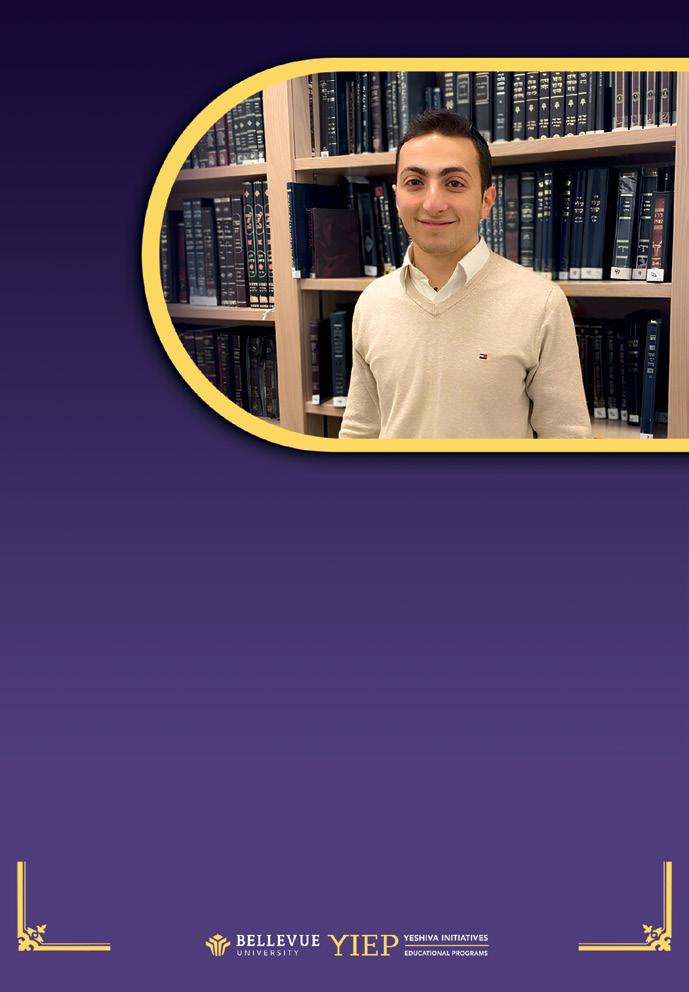

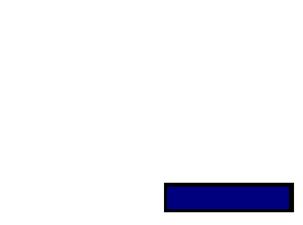



OU ISRAEL CENTER 53


OLIM THINKING ALOUD
REBBETZIN ROOKIE AND RABBI HESHIE BILLET
The Importance of Learning Hebrew in the Diaspora
This is the first of occasional articles on relevant subjects that we will be writing together. We love the weekly magazine and are delighted to be a part of the endeavor. This week’s subject is The Importance of Learning Hebrew in the Diaspora. We will alternate with a series of questions about the topic and give you a sampling of our respective views. If the subject warrants further exploration than this space allows, we will provide a sequel on the same subject. Here goes!
Why are so many Americans weak in their Hebrew skills:
Heshie: I once attended a conference in Israel. One of the sessions was about teaching Hebrew in the Diaspora. As the Rabbi of a large Modern Orthodox synagogue whose population all sent their kids to day schools, I was asked, why the Hebrew language skills of many of the graduates of Jewish Day Schools and High Schools were so poor.
I suggested that regrettably, many of the religious studies teachers trained in the Diaspora understood written Hebrew from their study of Jewish texts, but were
not fluent in speaking it. In addition, even when they could instruct in Hebrew, there was pressure from both the kids and often the parents as well, to instruct in English so that the material would be more easily understood by the students. Do you need Hebrew to make Aliyah?
Rookie: Most Americans who move to Israel after their formal schooling is complete will tell you that you can manage with your English in most places, and not knowing Hebrew well should not deter you from making aliya! First, with time and effort, you can improve your Hebrew skills without the benefit of early Hebrew instruction even though closing the gap is a slow process and can be a frustrating project. You certainly can certainly go shopping for groceries, ride the buses and get basic repairs done at home without Hebrew. Even if you are dealing with a vendor who is a poor English speaker, usually, someone in that business who can at least understand your English and give you basic help will be able to get on the phone, or walk over to you at the store to assist. Anglo consumers who are also adequate Hebrew speakers that are shopping at that venue can often serve as a translator to
54 TORAH TIDBITS 1555 / KI TISA
help you express your needs as well! So why are we advocating trying to improve and eventually master Hebrew?
Heshie: On a trip to Israel, I met a collector on the plane who had frequently visited me for a contribution to his organization when I lived in the US. He always spoke to me in Yiddish and not in Hebrew on those trips of his because where he was raised in Israel, communication was only in Yiddish. On the plane, I was surprised to see him reading a secular Hebrew newspaper. I challenged him about that. He admitted that he did speak and read modern Hebrew fluently. He was reading the paper, he explained, “because, I have to know what the ‘Zionist enemy’ is thinking!
In a sense, he is correct. Without Hebrew language skills, one misses so much in Israel.
That includes: listening to the news, reading a Hebrew newspaper, reading secular books, conversing with an Israeli not skilled in English, understanding a Hebrew- speaking tour guide, and enjoying the true ambiance in Israel. Of course, In the army, soldiers do not have the luxury of getting instructions in training or in the battlefield translated into English.

Rookie: For us, the current war has brought home to us the idea that those without adequate Hebrew are missing so much in terms of the nuances of what is taking place. There is every reason to be impressed with the quality of news coverage by the Anglo press. But when we listen in Ivrit to a commentator on the radio; to the soldiers who describe their both challenging and sometimes miraculous experiences; to commanders who give their troops inspiring words of chizuk and encouragement before they go into battle; to the family members of the hostages whose fervent pleas for their loved ones’ release are aired; to the comments of the bereaved family members of the fallen soldiers; one cannot help but be ‘blown away’ by the depth of their emotions and how brilliantly and articulately these feelings are expressed. Several times a day, I thank Hashem that I know Hebrew and that my soul can be moved by all of these holy and inspirational people.
A recent oleh, Heshie Billet is Rabbi emeritus of the Young Israel of Woodmere and a past President of the Rabbinical Council of America. A recent olah, Rookie Billet retired from a long career as a Jewish educator, principal, synagogue rebbetzin, and yo’etzet halacha in the US.

OU ISRAEL CENTER 55
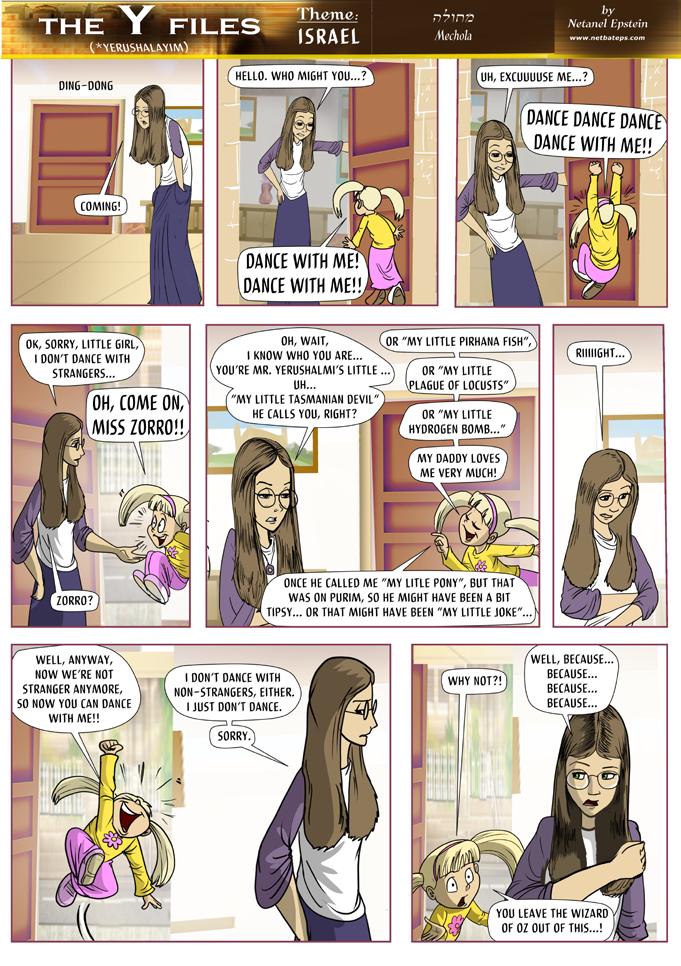













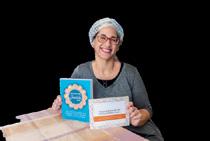
58 TORAH TIDBITS 1555 / KI TISA ENGLISH SPEAKING LAW FIRM Orit Madar, Adv Family Law and Mediation Divorce, Child support, Custody Inheritance & Wills Yariv Madar, Adv. Bodily Injuries, Medical Malpractice Civil Litigation 10 Hillel St , Jerusalem | 36 Dam hamkabim st , Modiin 02-6255592, 050-3202909 Madar@netvision net il MAXI BoX 053-7272-815 ד״סב Storage Your place for extra space Flying Soon? Travel with Confidence 1UniTravel - Medical Insurance at great prices Choose from multiple options 1unitravel.brokersnexus.com 1UniSim - Sims for USA and Worldwide Starting at $40 sales@1unisim.com Call 077-400-3199 or USA 718-715-0001 FOR LESS THAN $1 A DAY. starts mARCH 3 @BALAGANBEGONE GO.BALAGANBEGONE.COM/PAINLESSPESACH JOIN THE 36 - DAY DECLUTTERING CHALLENGE Easy to follow schedule and challenges Supportive Private Facebook and WhatsApp groups Tips and tricks to streamline and simplify life Exclusive checklists to keep you on track 18 bonus days MAKE PESACH PAINLESS PAINLESS PESACH 36-DAY DECLUTTERING CHALLENGE















OU ISRAEL CENTER 59 TIBERIAS - KINNERET, NORTH ISRAEL TRIPLE THREAT PROPERTY MAKE IT YOUR DREAM VILLA HOME EXCELLENT FOR LONG TERM RENTAL MAKE IT INTO AN AIRBNB - 3 APARTMENTS IL: 972.52.682.9367 info@keteradvisors.com US: 786.385.8859 www.keteradvisors.com Izzy Leizerowitz Broker Fee: 2% + VAT KETER ADVISORS: THE CROWN JEWEL OF ISRAEL REAL ESTATE 10 ROOMS, 350 SQM HOME - 3 FLOORS 520 SQM LOT W/AMAZING VIEWS CLOSE TO SHULS, SHOPPING, LARGE GARDEN W/ FRUIT TREES VILLA CAN BE SPLIT INTO 3 UNITS FOR RENTAL - EACH FLOOR IS 100 SQM ASKING 4.3M NIS Simplify Your Tzedaka Open a JGive donor-advised fund (DAF), donate to any Israeli charity in ILS, GBP, or USD and receive a tax-deductible receipt. Scan for more info: Or email us at platinum@jgive.com


TORAH 4 TEENS
BY TEENS NCSY ISRAEL
Moriah Goldsmith Raanana Chapter Director
Small Drops of Ink
I recently heard a wonderful idea from Rabbi Eli Schwartz about achieving greatness in our lives. Often, we think greatness is all about big, attention-grabbing moments, but maybe it’s found in something else entirely. In our parsha, as Moshe descends from Har Sinai with the תירבה תוחול, something remarkable happens – his face glows. The Torah pauses to mention this:
“ֹותא ורבדב וינפ רֹוע ןרק יכ עדי־אֹ ל השמו"
So, where does this glow come from?
According to the Midrash, it came from a simple act: as Moshe finishes writing the Torah, he wipes his brow, and the glow comes from the ink drops left on his hand. This teaches us a profound lesson – our own “glow”, our greatness isn’t just about those big moments, but it’s the sum of countless small acts or “ink drops” in our lives.
In our own journey, if we want to excel in our Judaism, we need to value those seemingly insignificant moments – the “small drops of ink.” It’s in those moments of study, prayer, acts of kindness, and connection with others that greatness is achieved.
Shabbat Shalom
Refuah Shleima to Ruth Friedson

Jonah Klein Raanana 11th Grade
Feeling the Pain of Others
Moshe stood at the gate of the camp and announced: ‘Whoever is on God’s side, come to me!’ And the whole tribe of Levi followed him. The Da’as Zekeinim mi’Ba’alei Tosfot writes that there were three groups by the “Eigel”:
One which only requested a leader, one which accepted the “Eigel” as a god (the 3,000 men who were judged by the sword), and the tribe of Levi who remained loyal to Hashem. The Chofetz Chayim added: When Moshe asked, “Who did not even donate one ring for the ‘Eigel’?” he was questioning who did not contribute to the Golden calf. His underlying meaning was “Who sides with God exclusively?” Moshe needed to identify those who stayed loyal to God and didn’t take part in donations to the Eigel.
His question showed a test of faith, singling out those loyal only to God rather than straying from true faith. Moshe aimed to distinguish the people who worshiped God alone from those who had taken place in the golden calf. The Ramban explains that the sword killed those who worshiped it, whoever embraced and kissed it died by plague, and those who only were happy over its creation died after drinking the water that had the gold
60 TORAH TIDBITS 1555 / KI TISA
And commitment to ‘chose with Midot, day, central perthat to far always improve the congrandchildren with bring on

Outside of Levi, every Jew was guilty of at least participating a little bit or staying quiet.
ticipating. It is well known that when Par’oh planned to enslave the Jews, Yitro objected, Bil’om condoned it, and Iyov was silent. Yisro converted, Bil’om was killed, and Iyov was not remain silent when people are hurt. Hashem tested how silent Iyov would remain when suffering himself. One cannot look away from others suffering.
thy, and it is the same with God. If we love Him, we cannot just watch as others reject and forget Him. We need to try to make
 Shabbat Shalom
Shabbat Shalom

• Curtains & draperies
• Designer curtains
• Venetian & Woven wood blinds
• Blackout, Vertical, Roller, Roman & Pleated shades
Shavei Hevron Institutions
Fundraising and Public Relations Department
Donor Relations
Representative Needed
Job Scope:
Full-time position
Job Description:
Regular communications with donors in Israel and abroad Assisting fundraisers of the organization with donor relations
Job Requirements:
Identification with the values and aims of the organization
Partial availability in the afternoon/ evening hours
Organized and good time management and execution of tasks
Fluent in English (mother- tongue level) in speech, reading and writing
Good level of Hebrew
Knowledge of CRM programs
Excellent personal relations and capacity for teamwork
Prior experience in donor relations/ customer service is an advantage
Position available immediately
For details and sending of resumes:

www.ashleywilde.co.il

dovi @shaveihevron.org
Possibility of working from home
Only relevant applicants will be contacted
OU ISRAEL CENTER 61
OU ISRAEL CENTER 81
greater
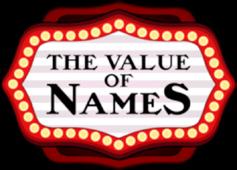



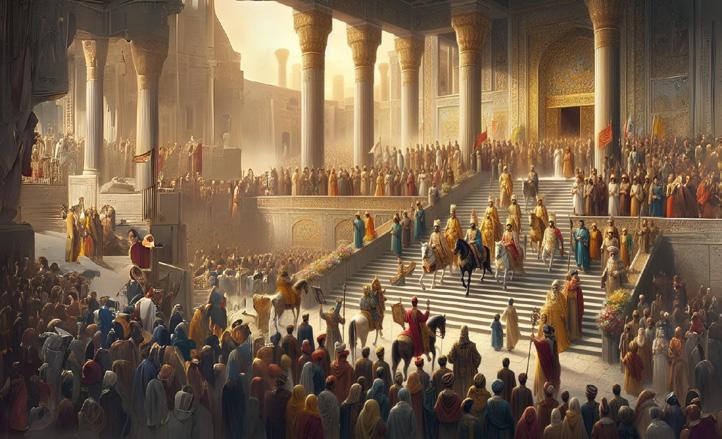

62 TORAH TIDBITS 1555 / KI TISA Yehoshua Looks, Esther Eisenberg, Theatre Zion presents: Tickets: theatrezion.co.il 02-630-3600 “A little gem all around.” - Baltimore Sun “Funny and wise...” - Chicago Magazine “Very moving, beautifully written.” Chicago Tribune Purim Themed Tours • Israel Museum • Bible Lands Museum • Virtual Tours to the Persian Empire www.museumtours.co.il 054-452-0209 P U R I M v i r t u a l 1 0 10% discount coupon: :דיקפתה תרדגה עוציב בקעמ | תומישמ לוהינ | זול לוהינ :דיקפתה תושירד לודג שאר םילועמ שונא יסחי ןורתי – תילגנא dovi@shaveihevron.org :םיטרפל תיבהמ הדובעל תורשפא ה/שורד ןורבח יבש תודסומל ת/ישיא ת/רזוע 50% :הרשמה ףקיה תידיימ :הדובע תליחת

!חצננ דחיב לֶמֵרְבַאשיט
לפוטס לבוי םע חחושמו רש דירפ םהרבא תילקיסומ הריירק תונש 40 לע המחלמה ירוביגל עידצמו
םילשורי המואה יניינב
׳א רדאב ו״כ | יעיבר
20:30 :תותלד תחיתפ
21:00 :עפומ תליחת | 6.3.24
:לגוגב
יקיזחמל החנהסיטרכ ימלשורי
OU ISRAEL CENTER 63
בק דהוא :םוליצ
הכלהכ המב ד״סב שיט למרבא
ושפח וא
*6565 קא'צקיט רתאב םיסיטרכ
:םיגיצמ
|






 BY RABBI CHANOCH YERES
R av, Beit Knesset Beit Yisrael, Yemin Moshe
BY RABBI CHANOCH YERES
R av, Beit Knesset Beit Yisrael, Yemin Moshe





























































































































 EDITOR, TORAH TIDBITS
EDITOR, TORAH TIDBITS RAV, THE JERUSALEM SHUL - BAKA, JERUSALEM
EDITOR, TORAH TIDBITS
EDITOR, TORAH TIDBITS RAV, THE JERUSALEM SHUL - BAKA, JERUSALEM








































 Shabbat Shalom
Shabbat Shalom










